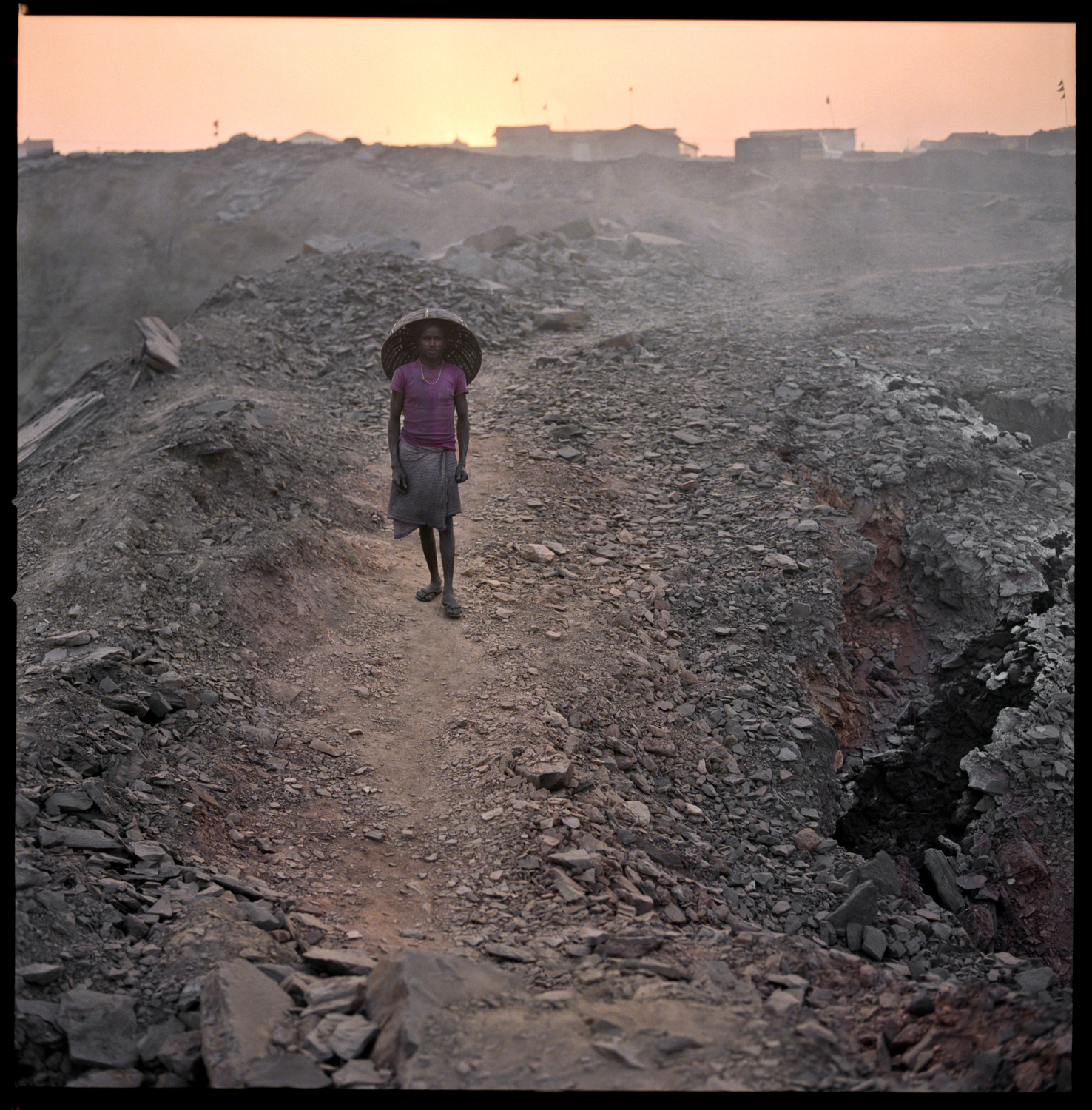
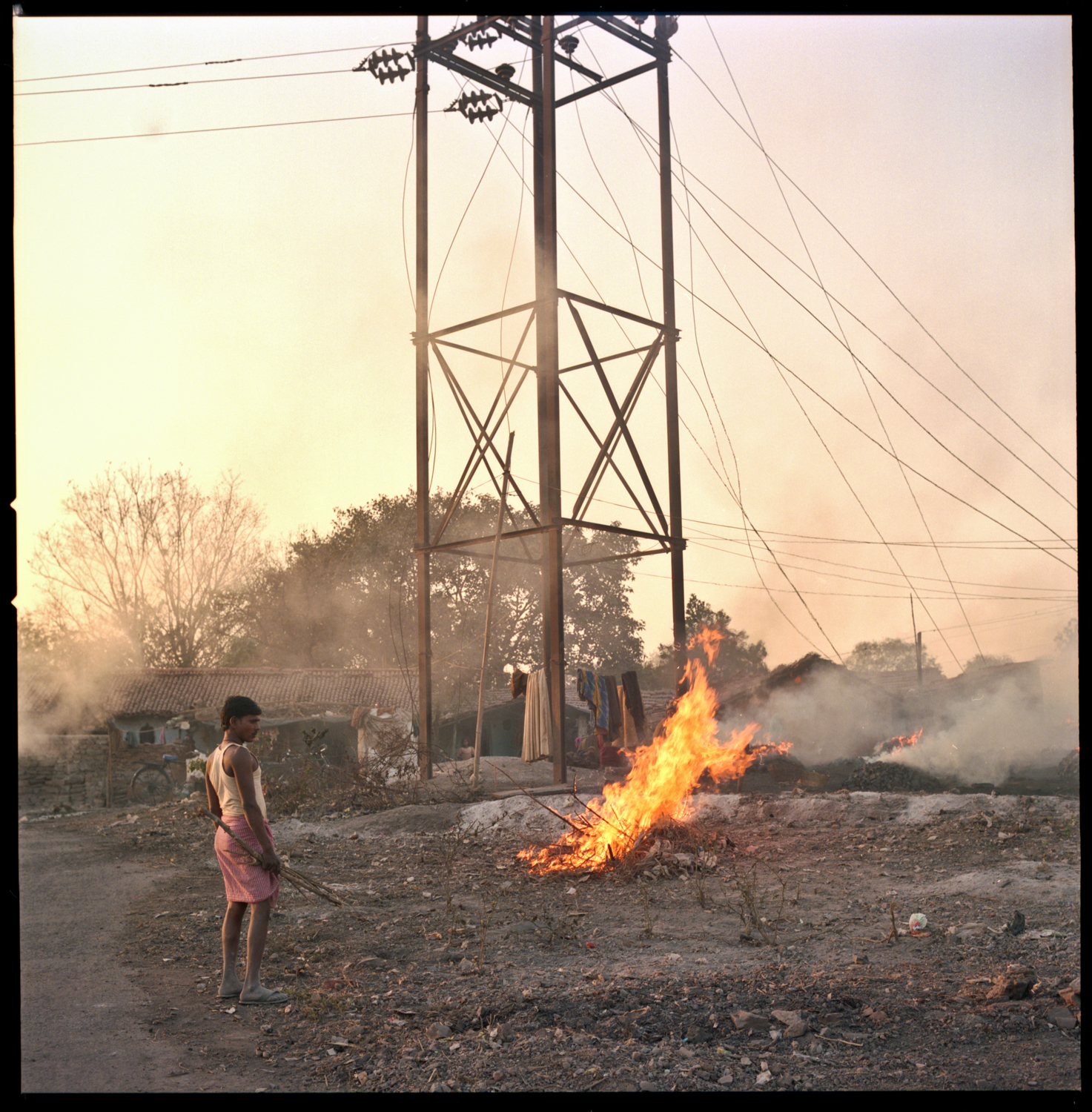
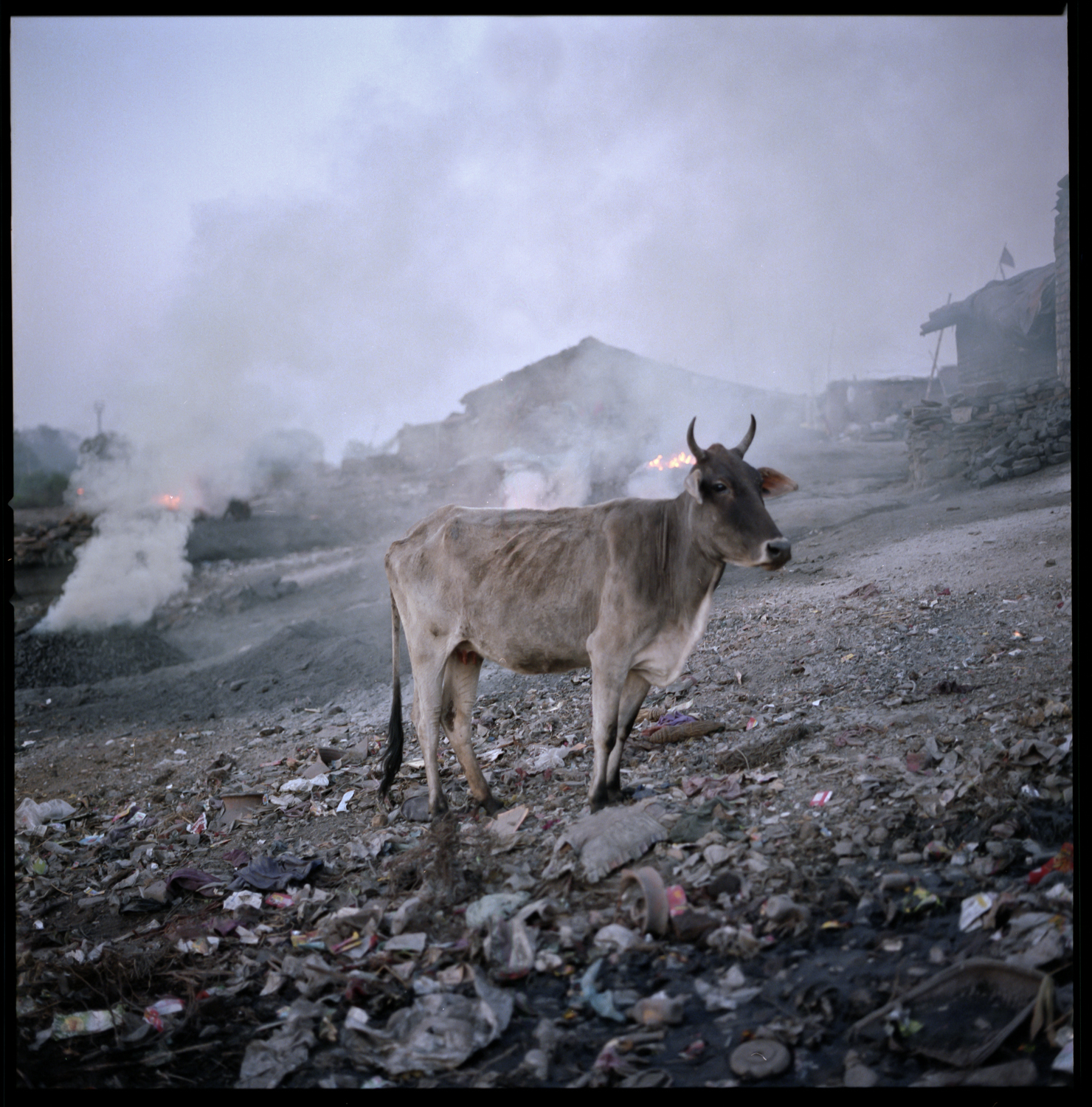
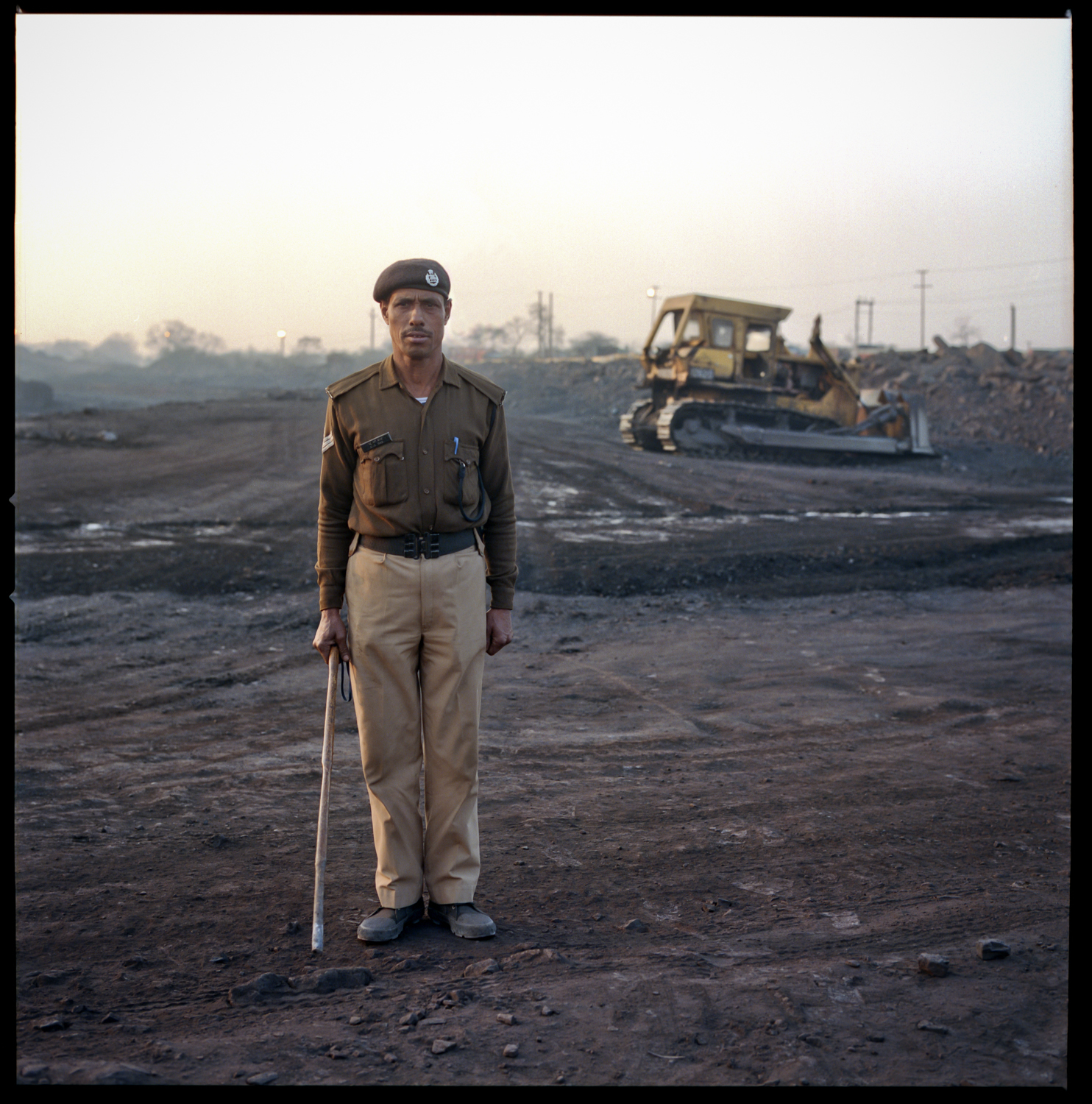
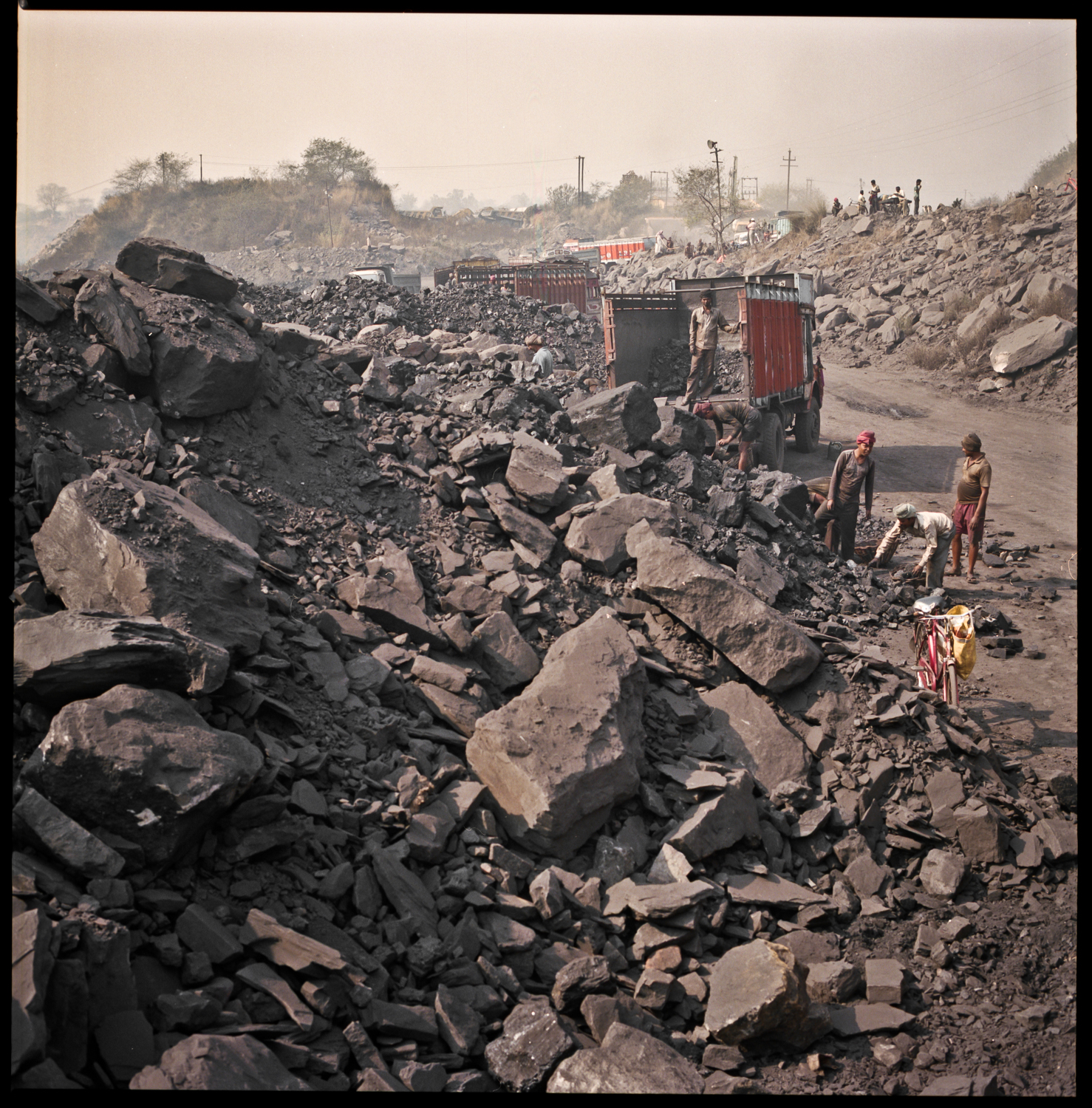
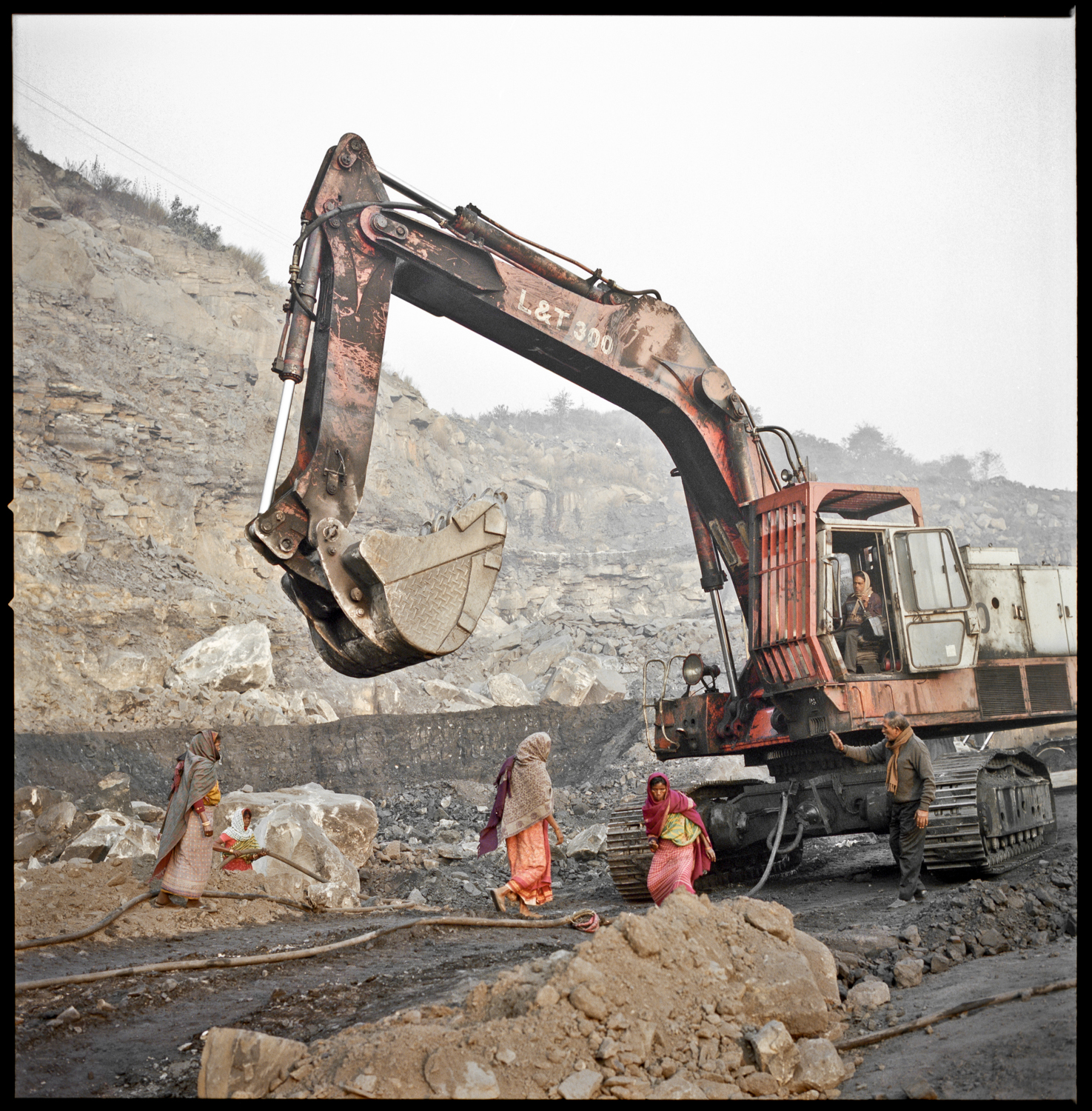
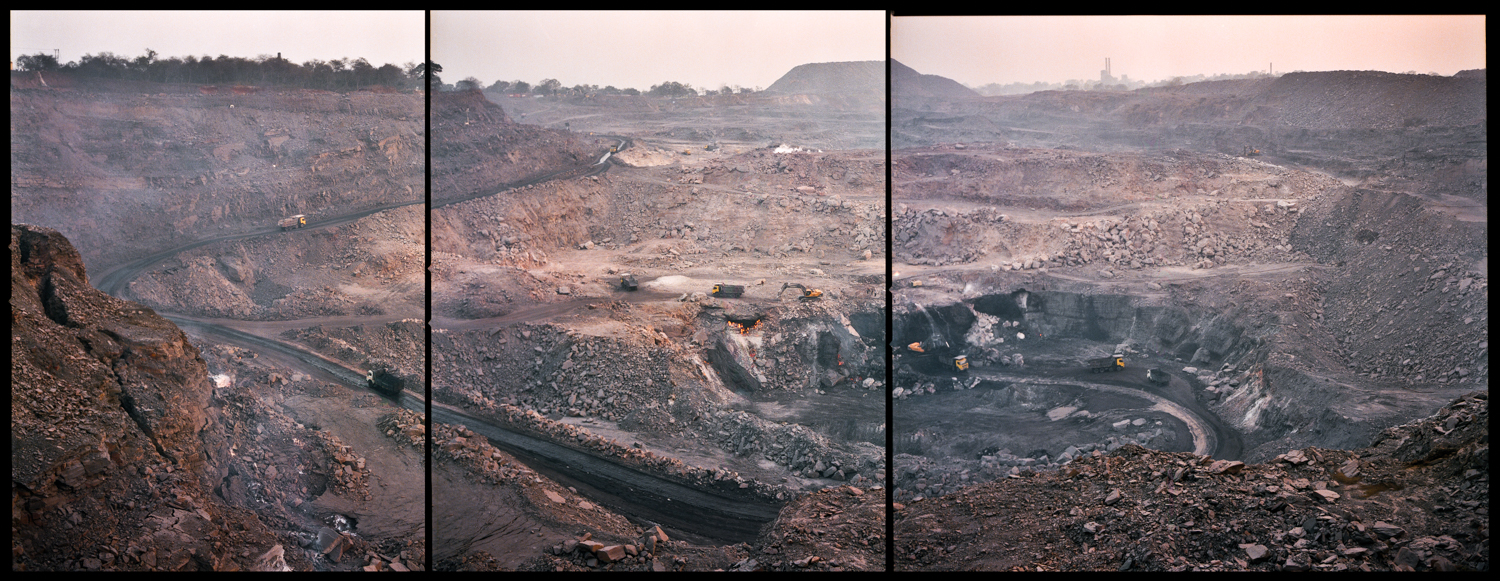
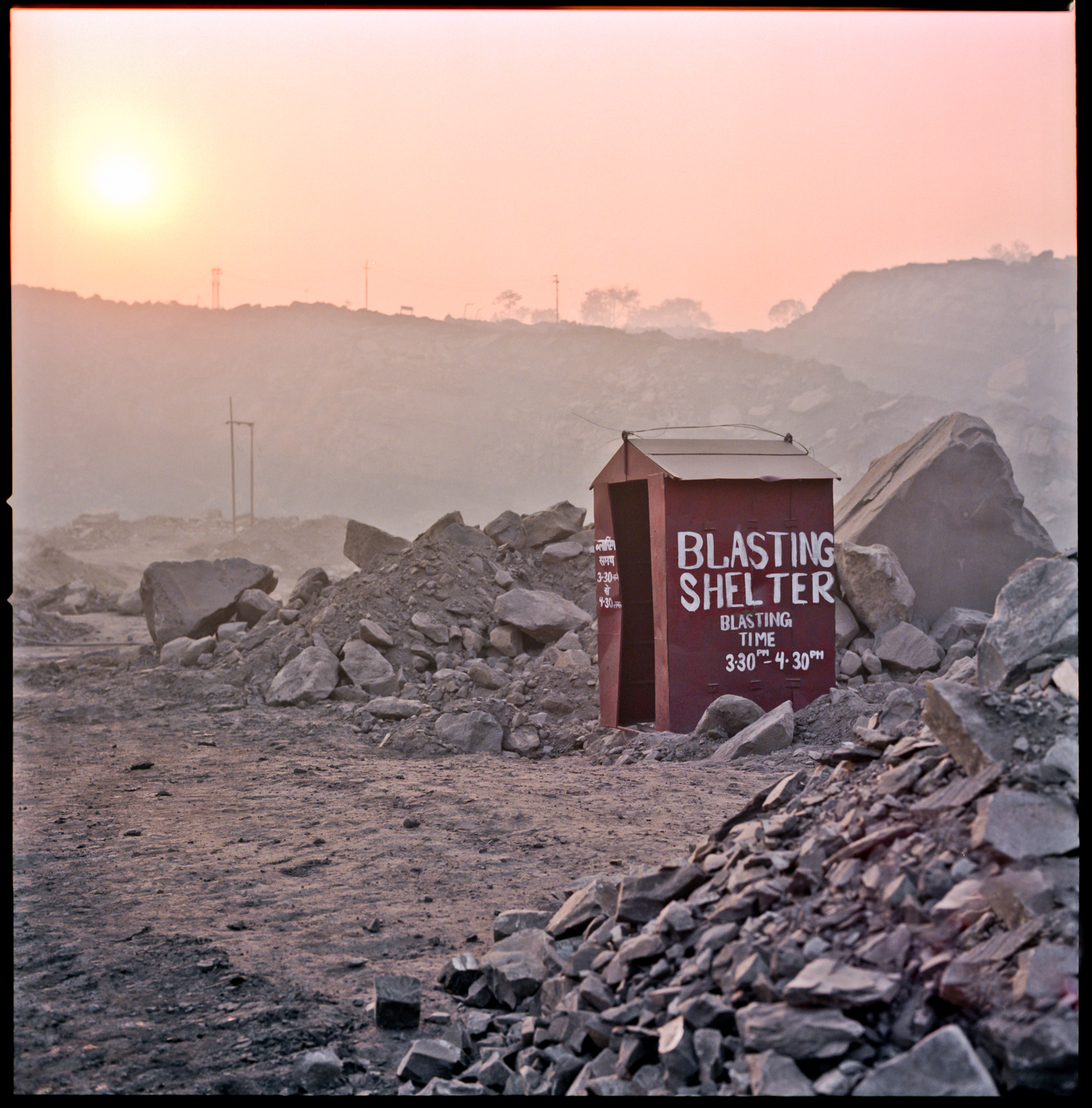
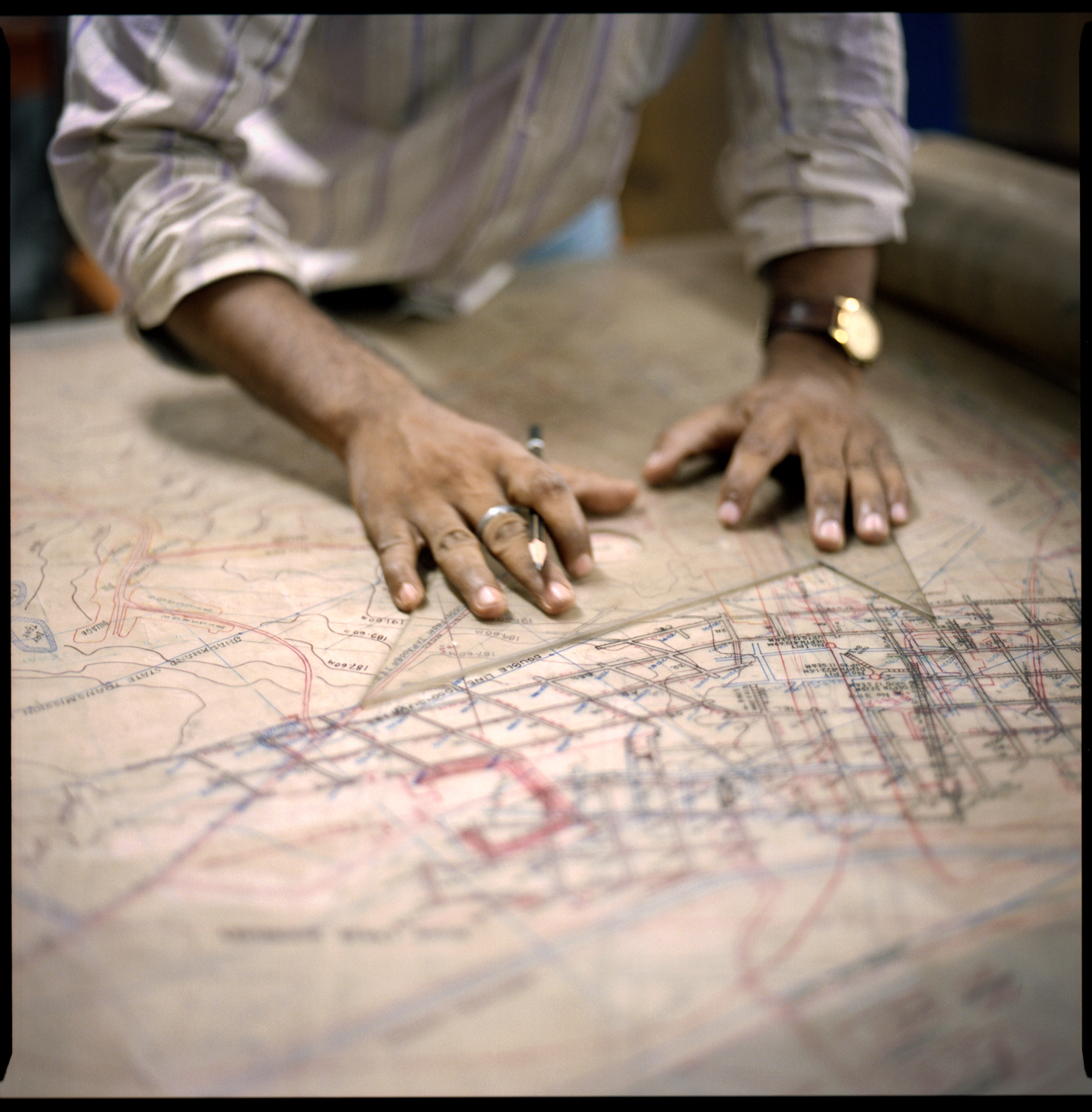
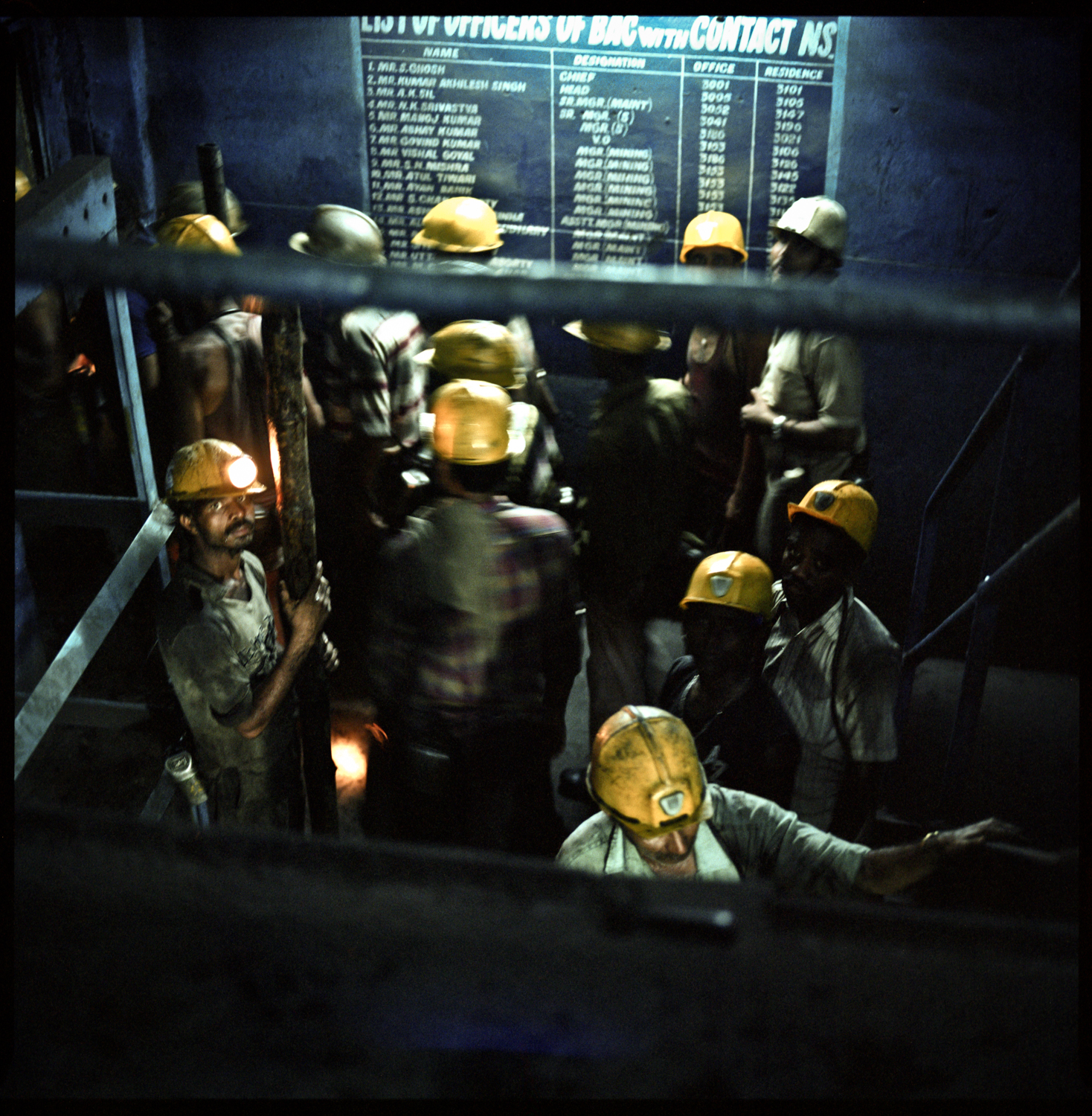
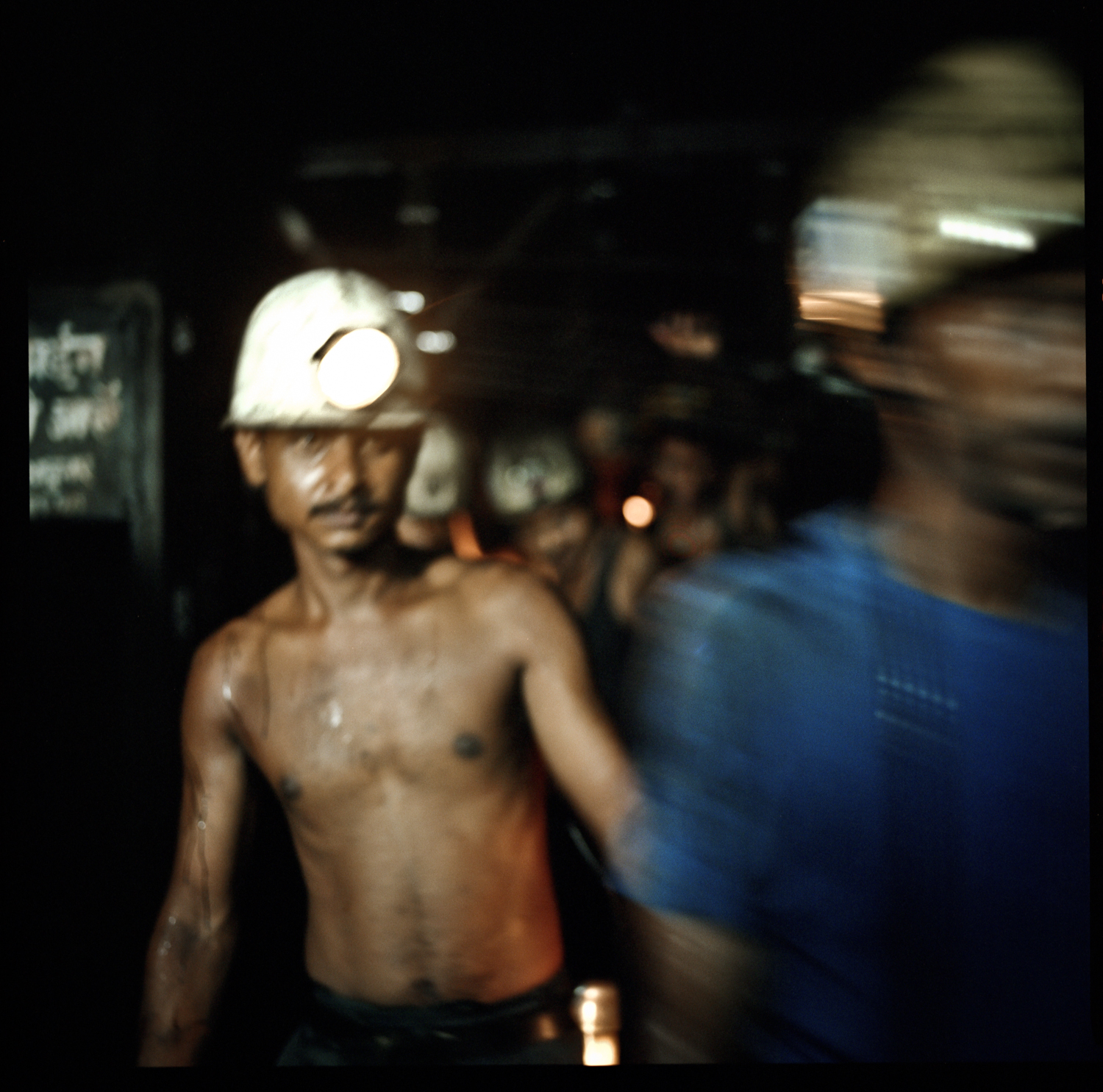
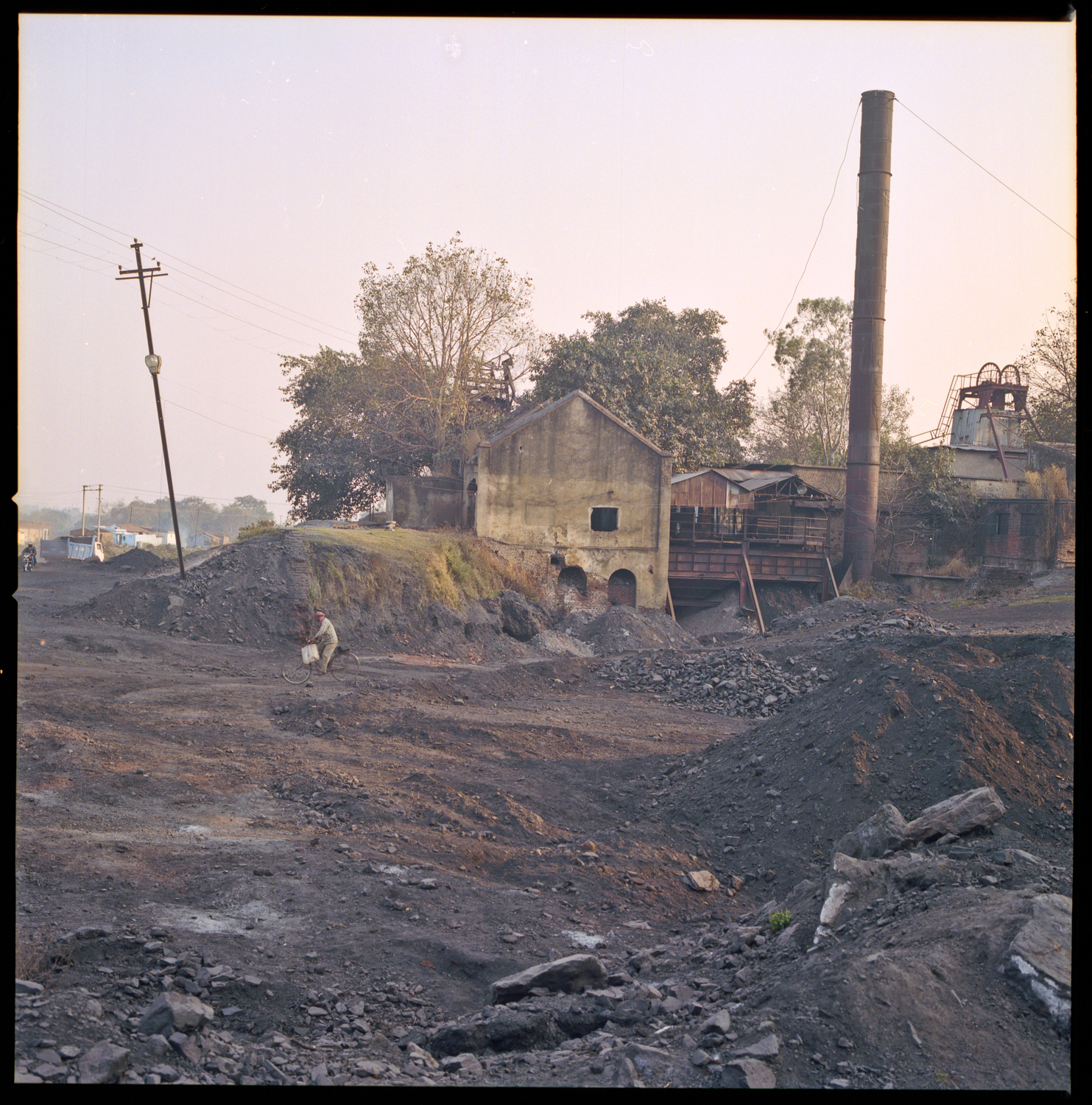
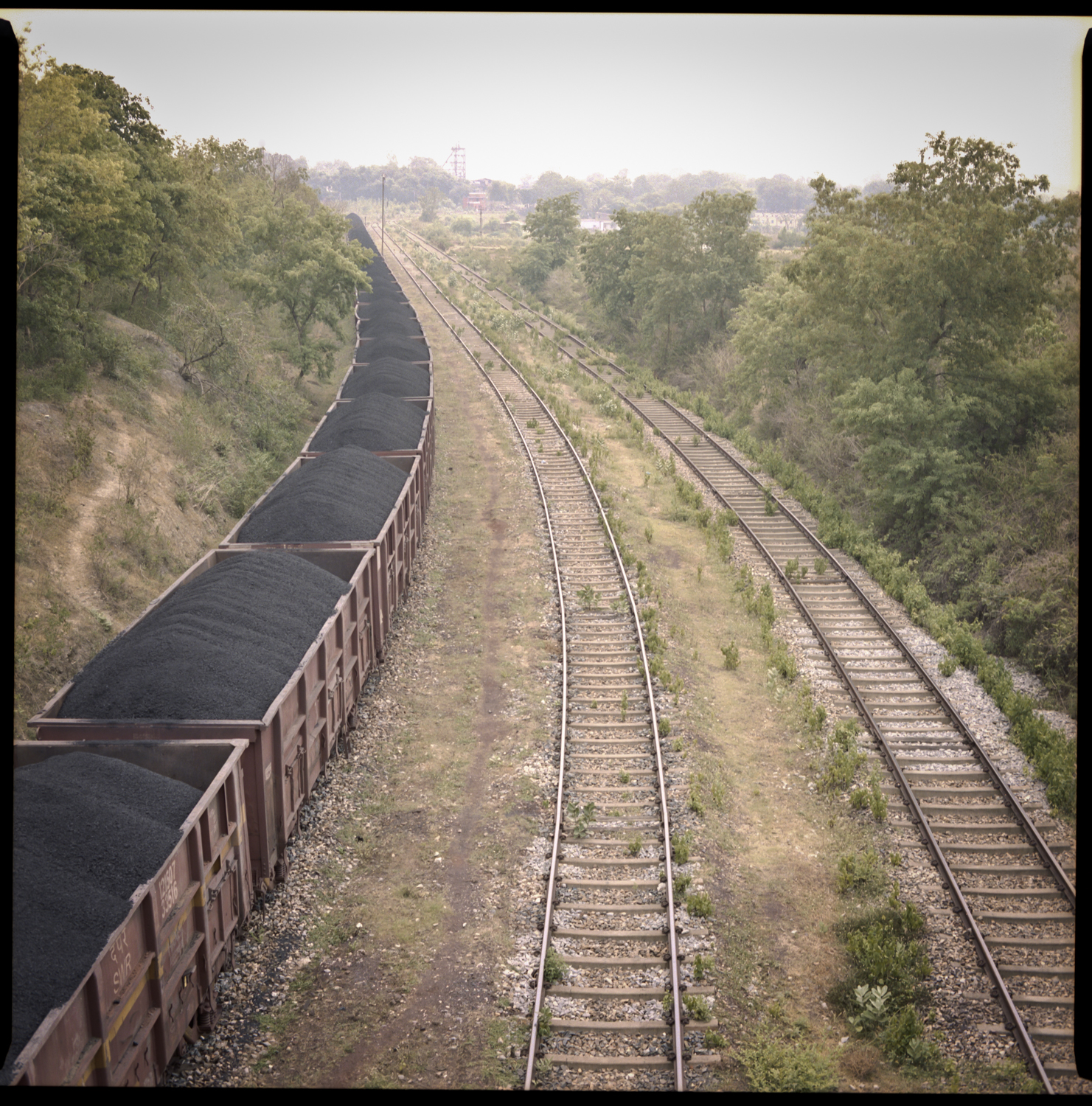
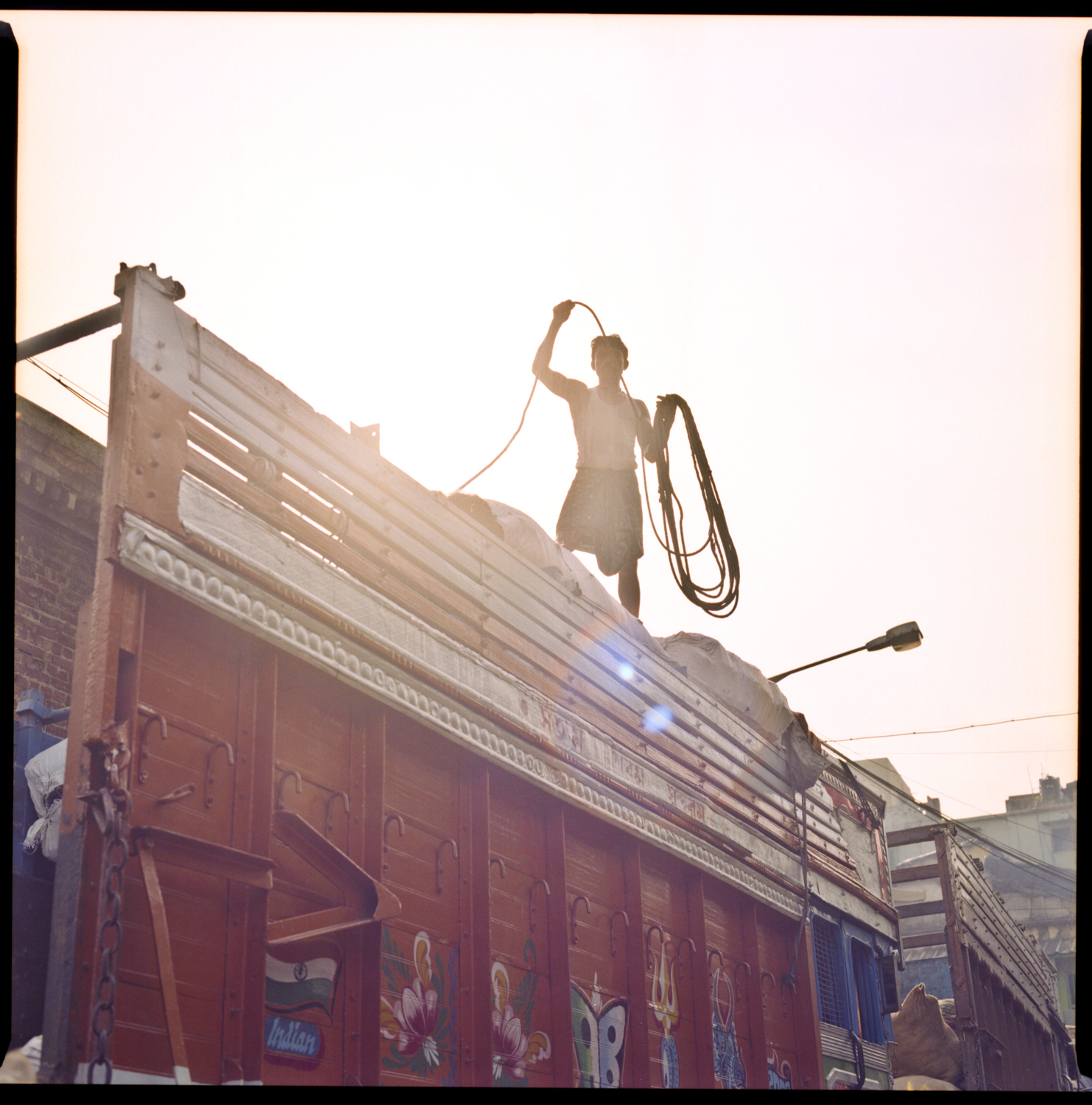
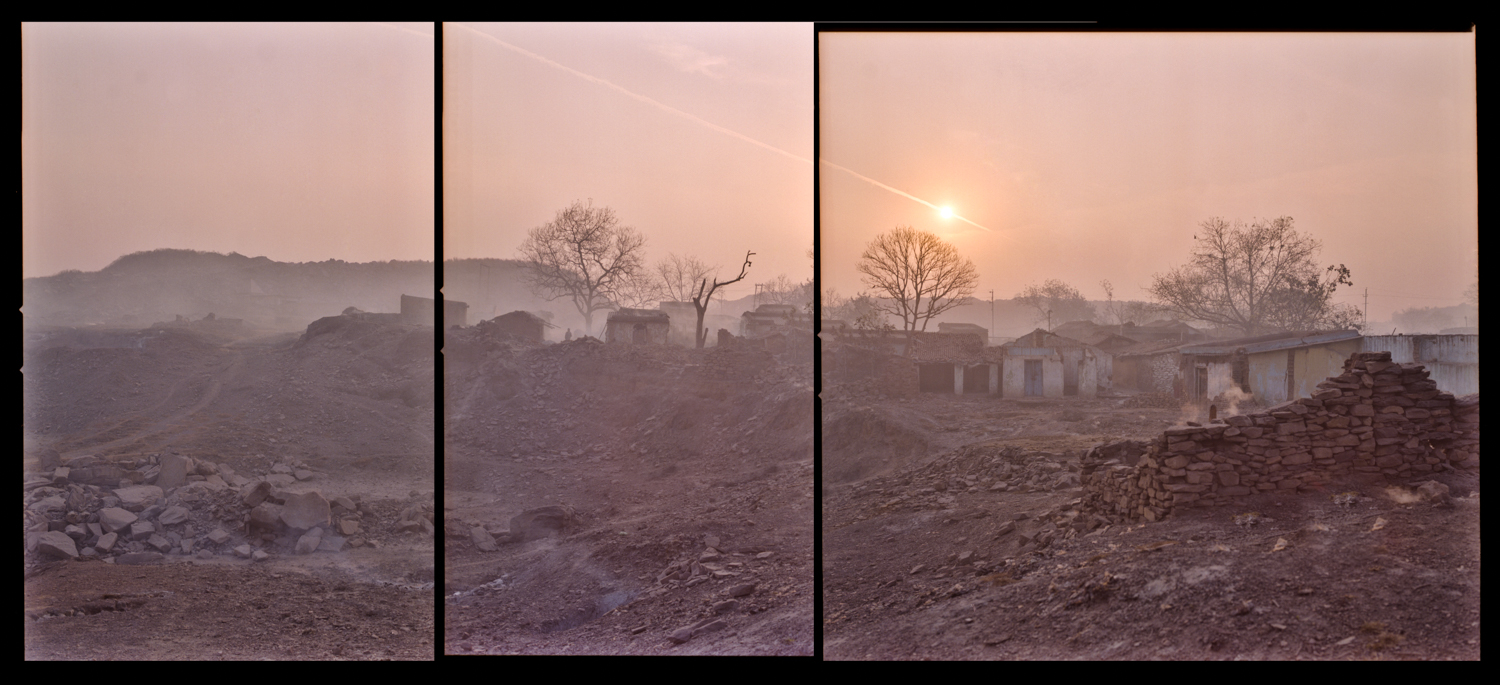
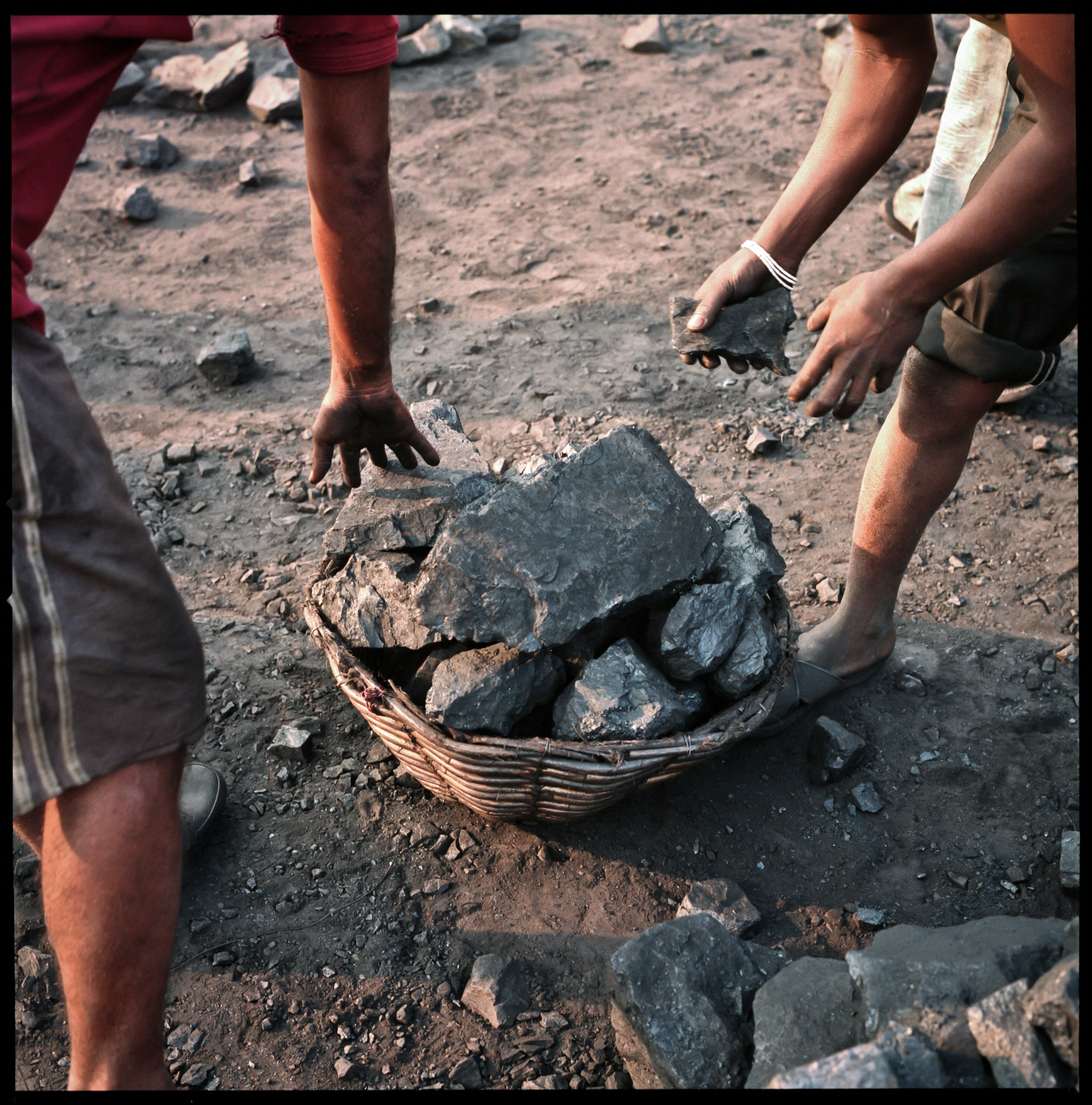
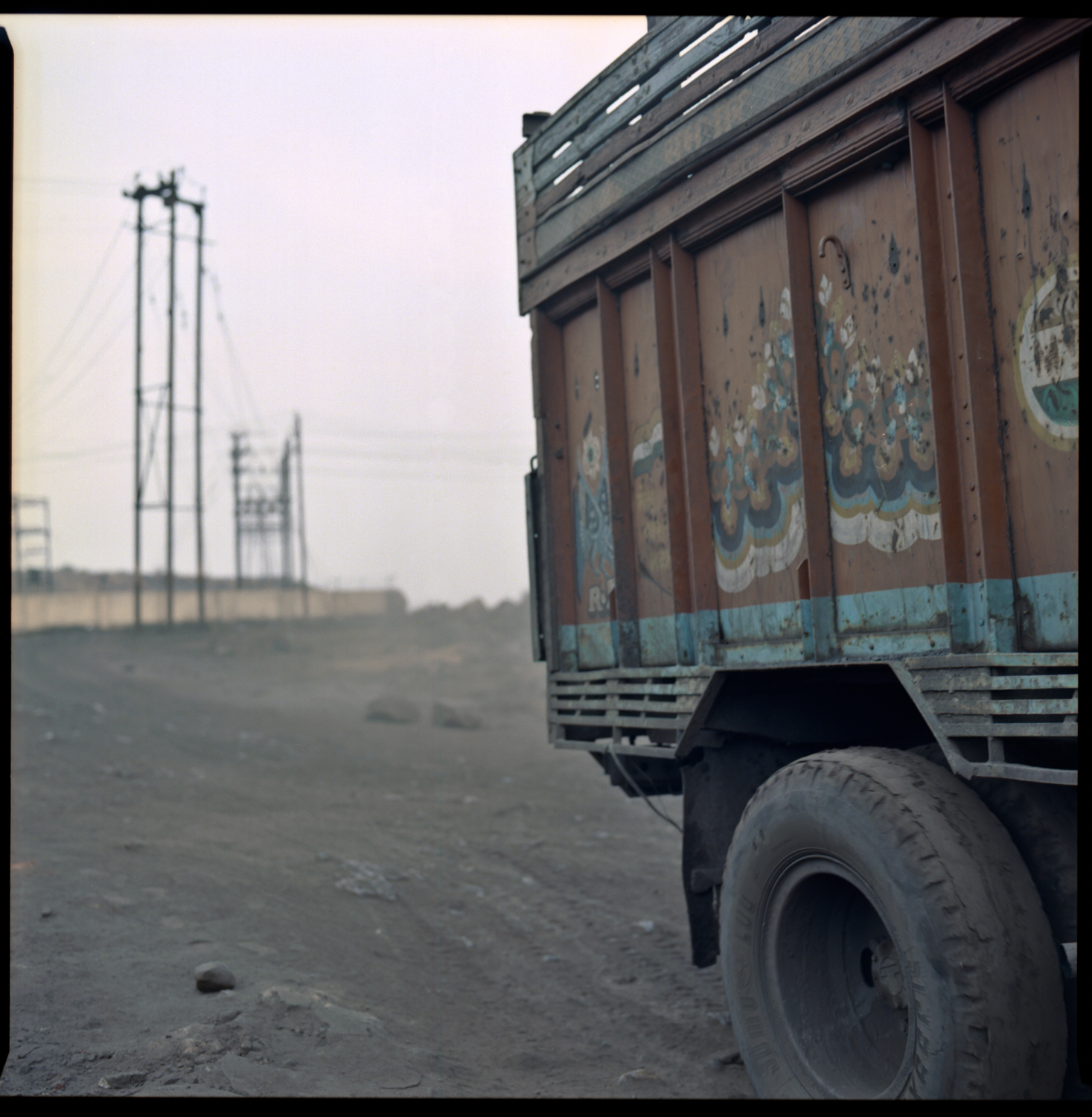
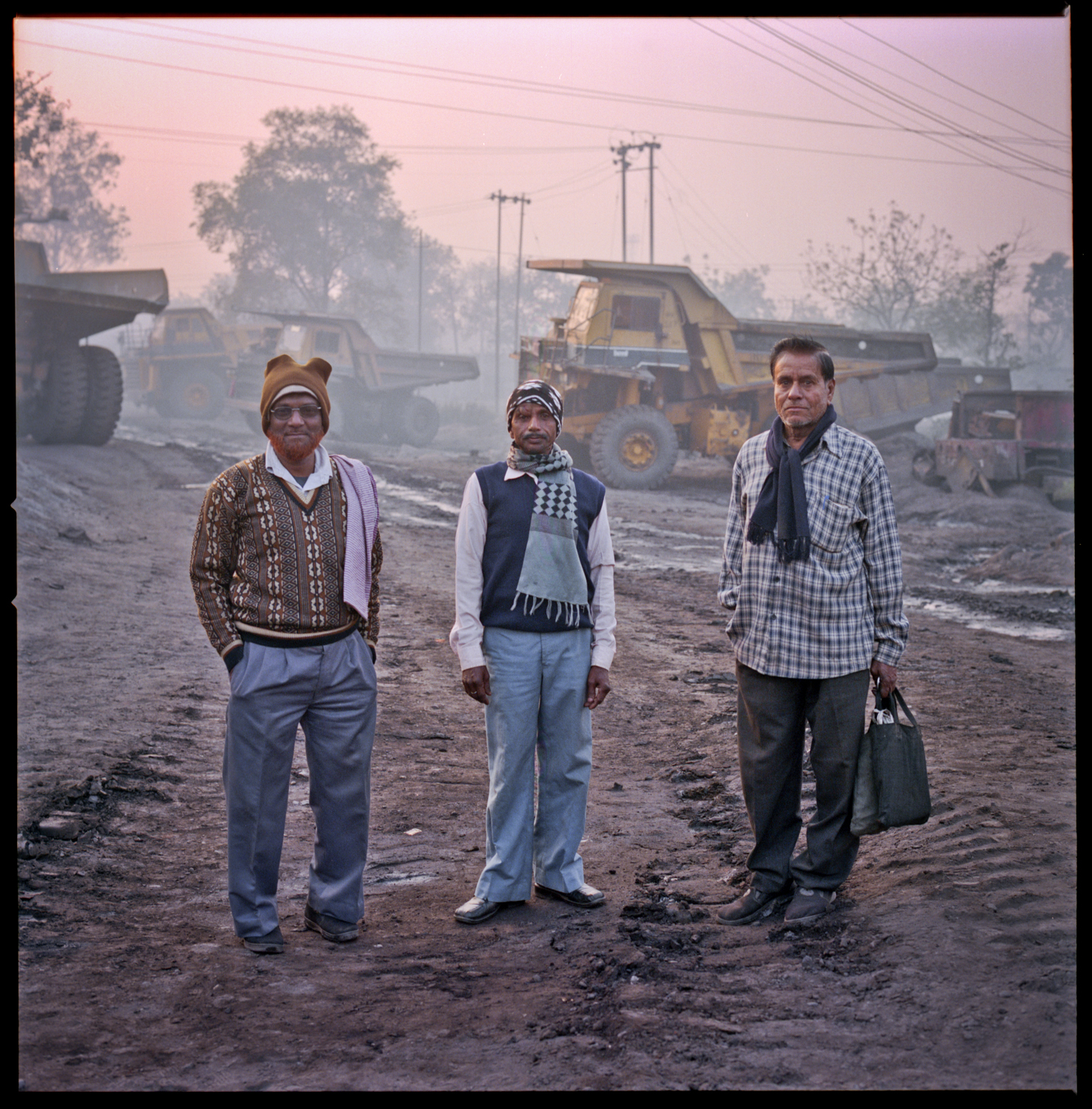
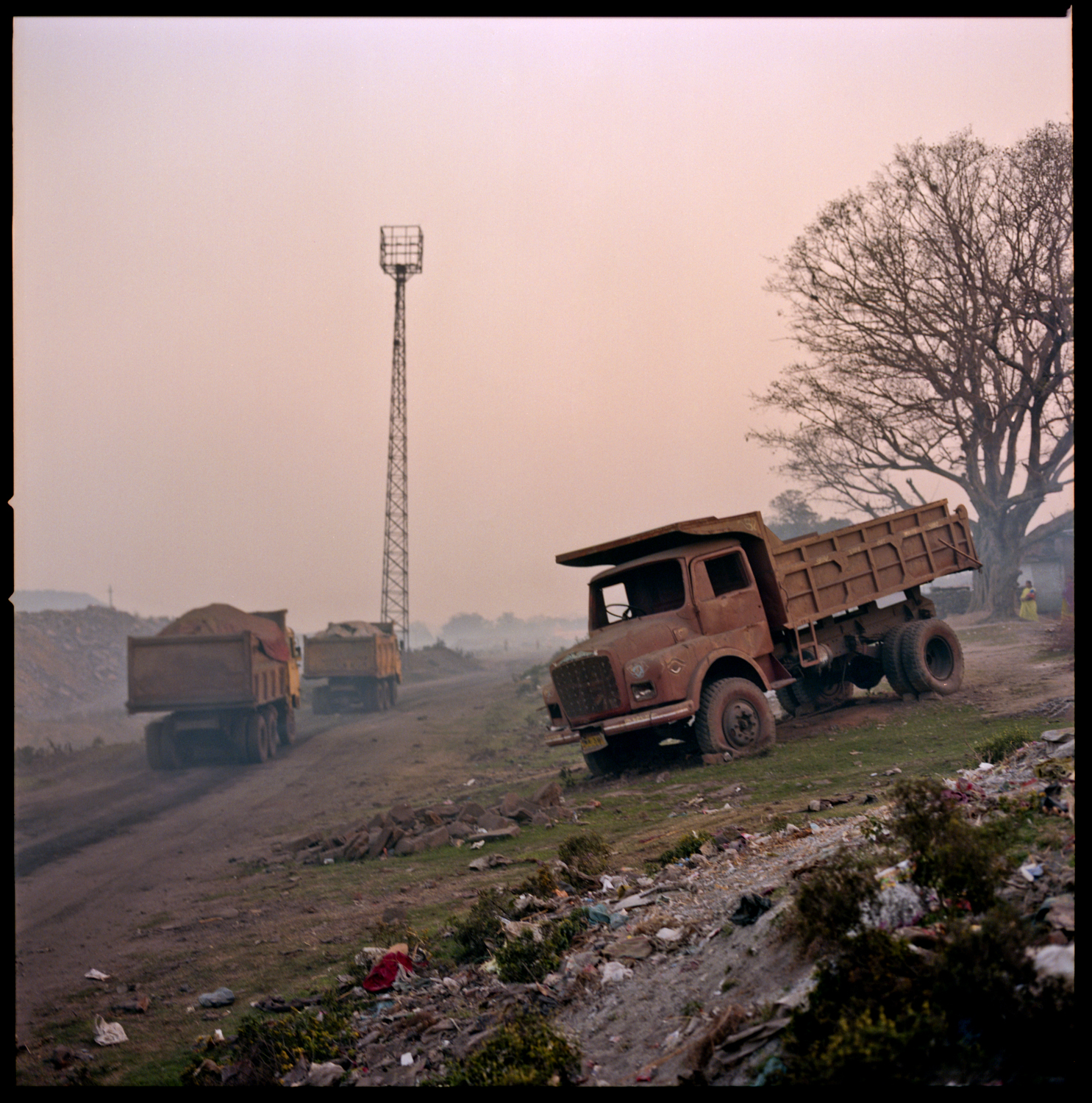
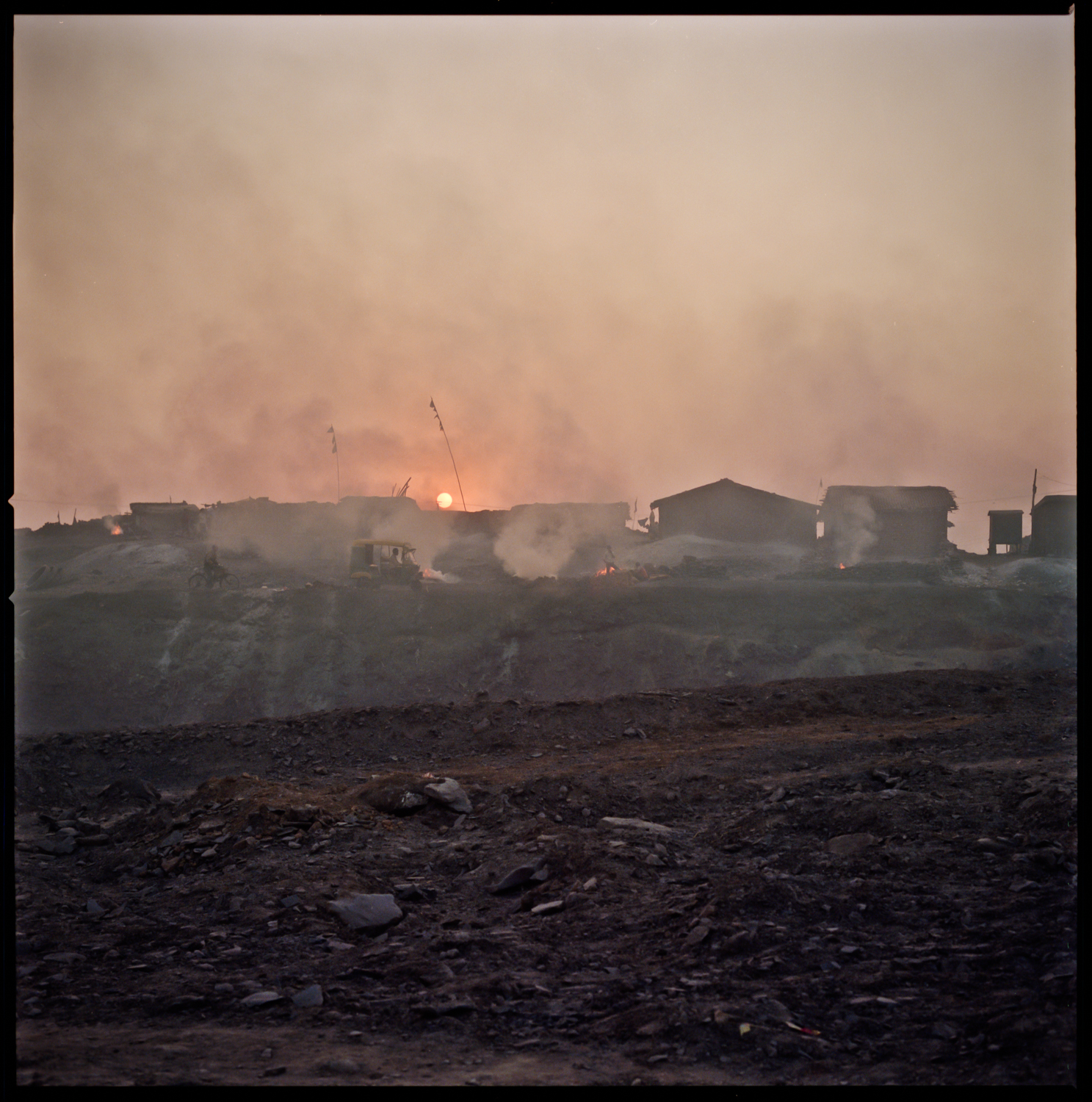
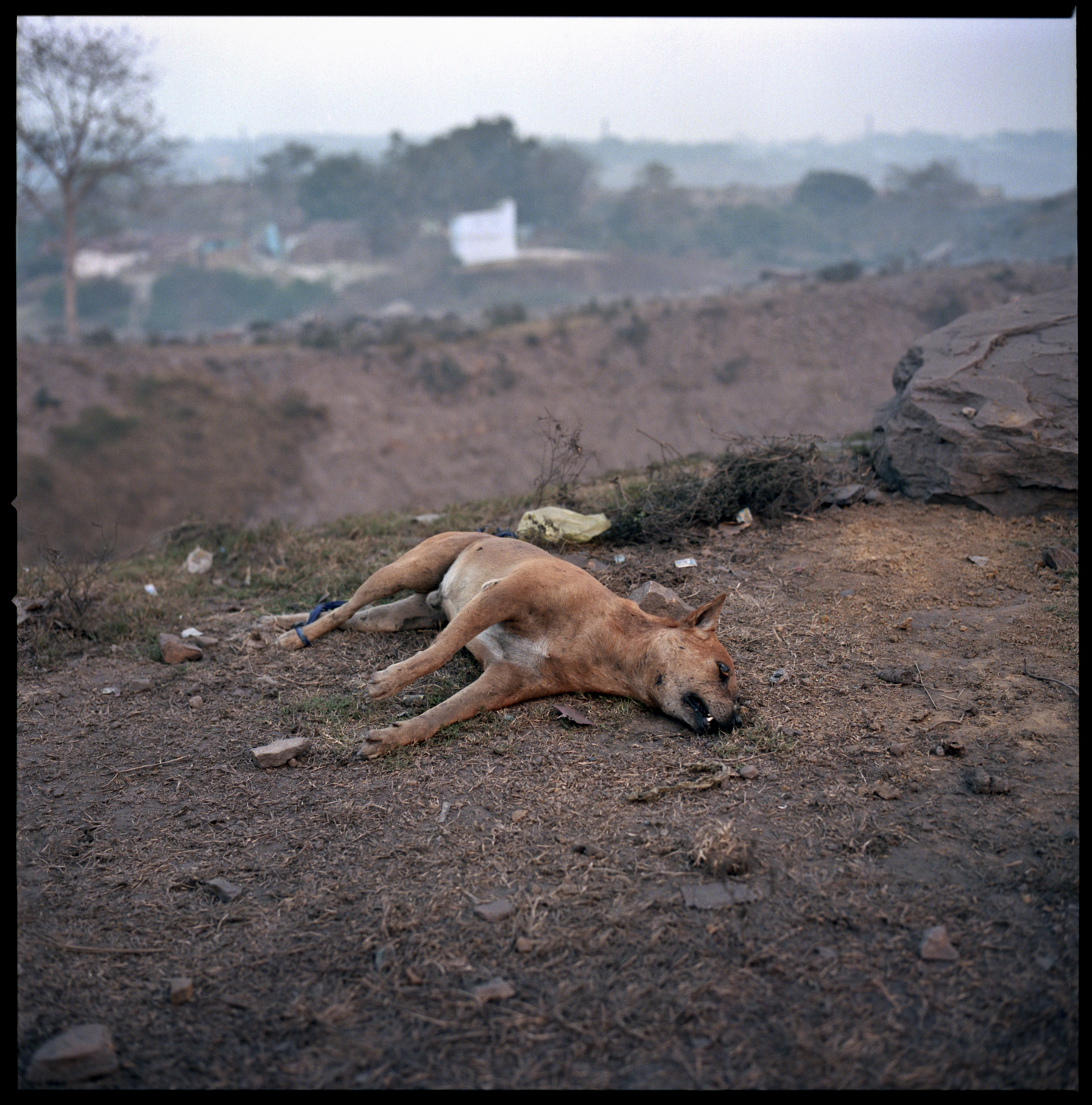
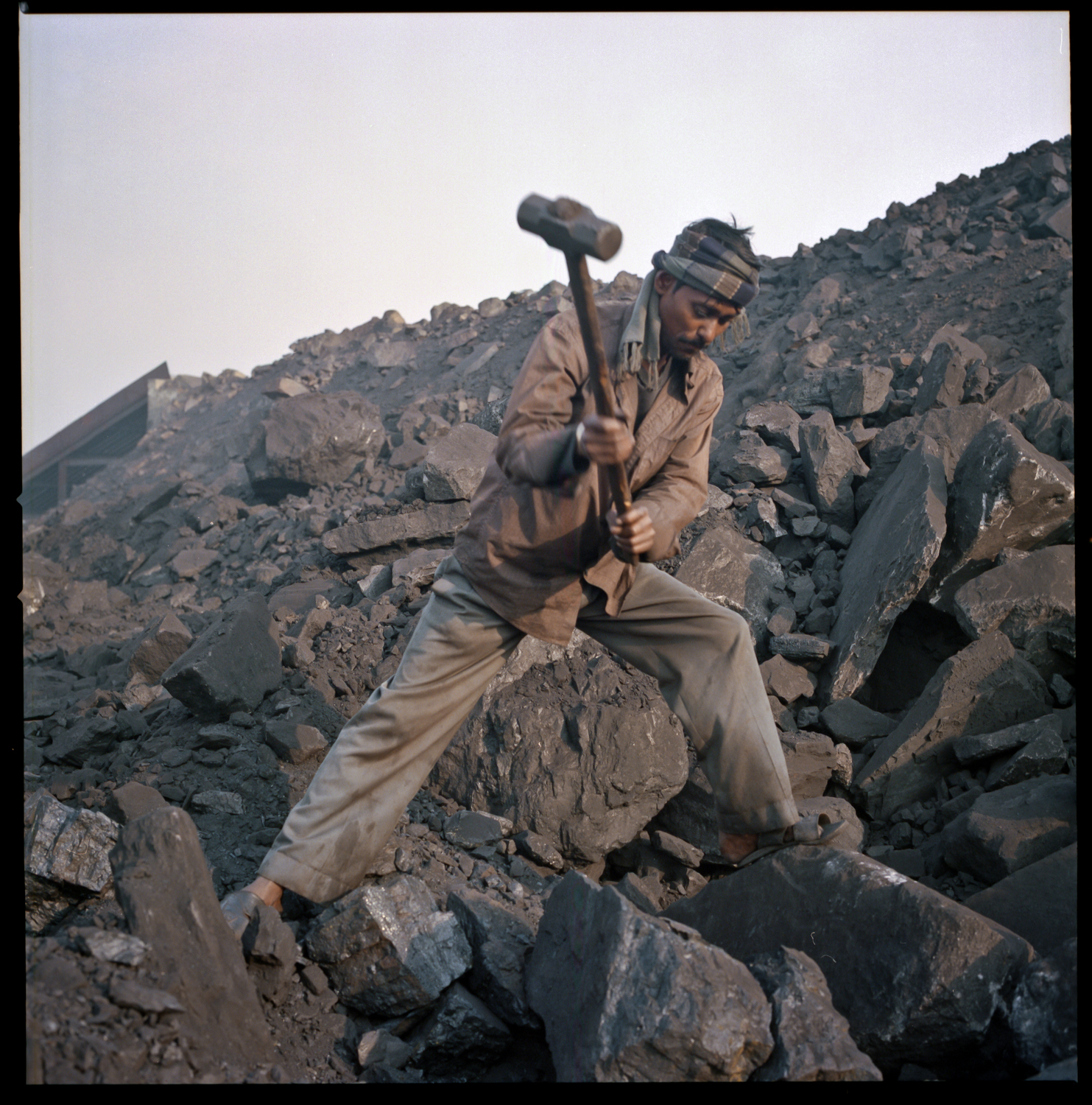
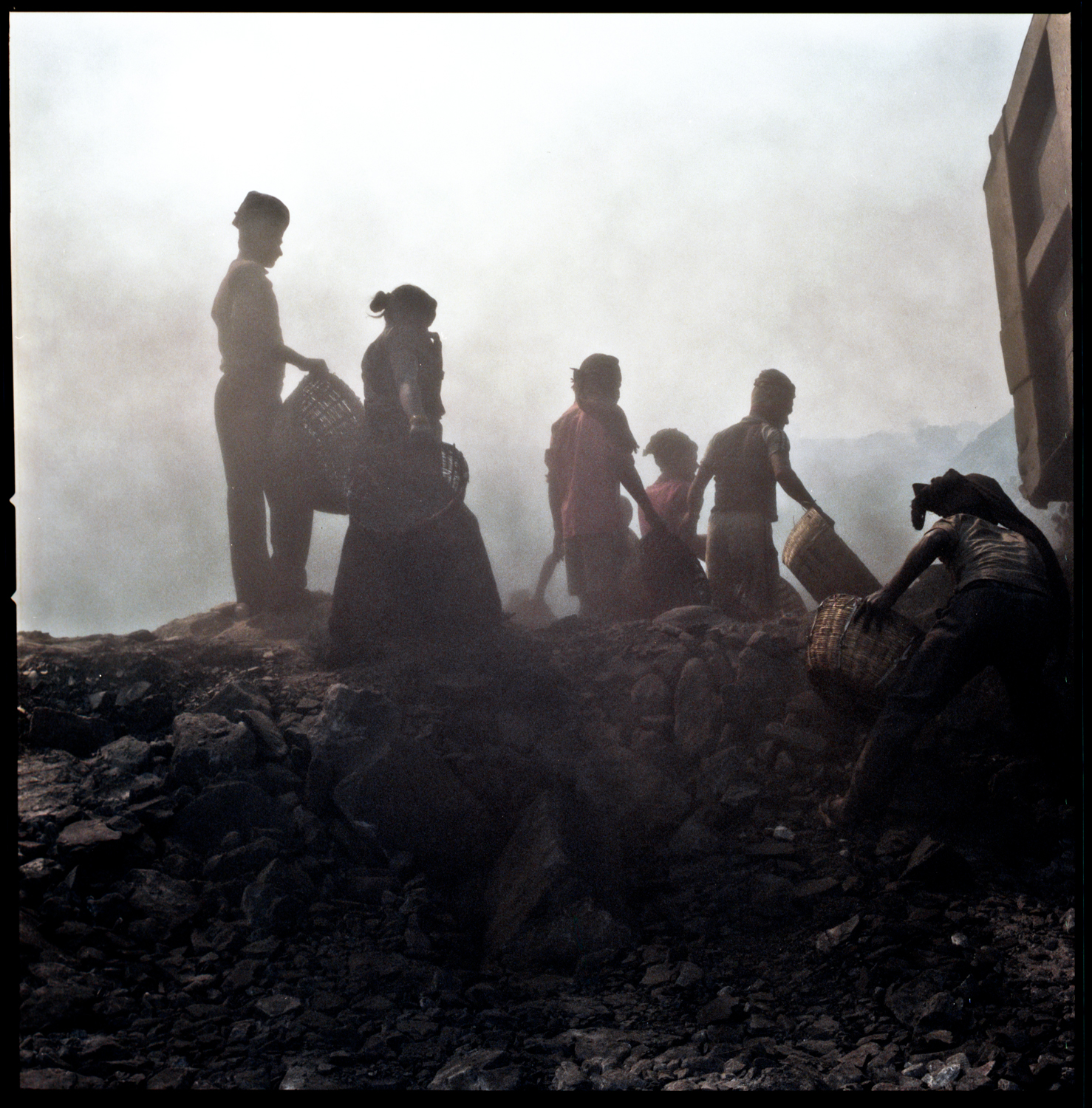
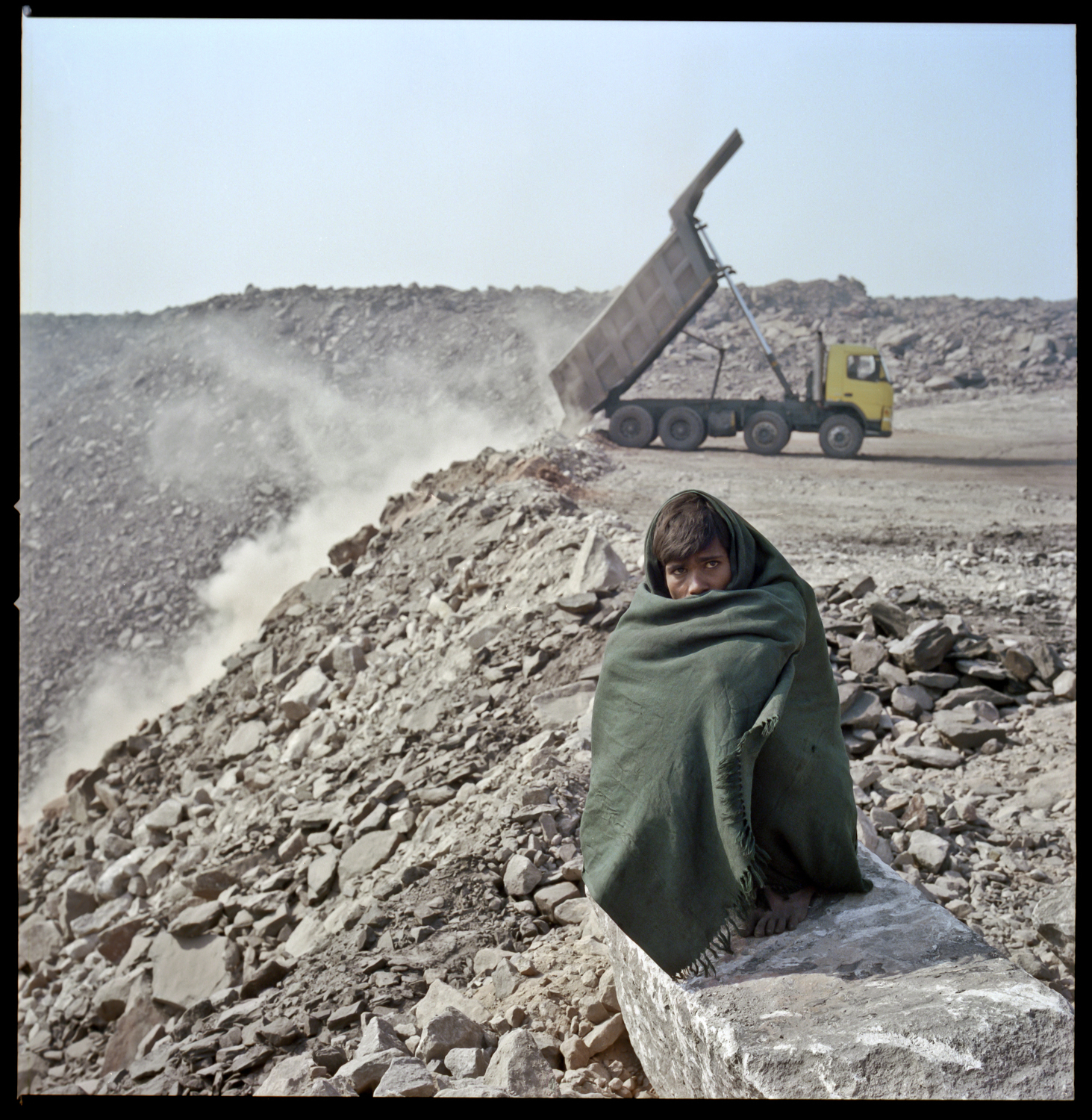
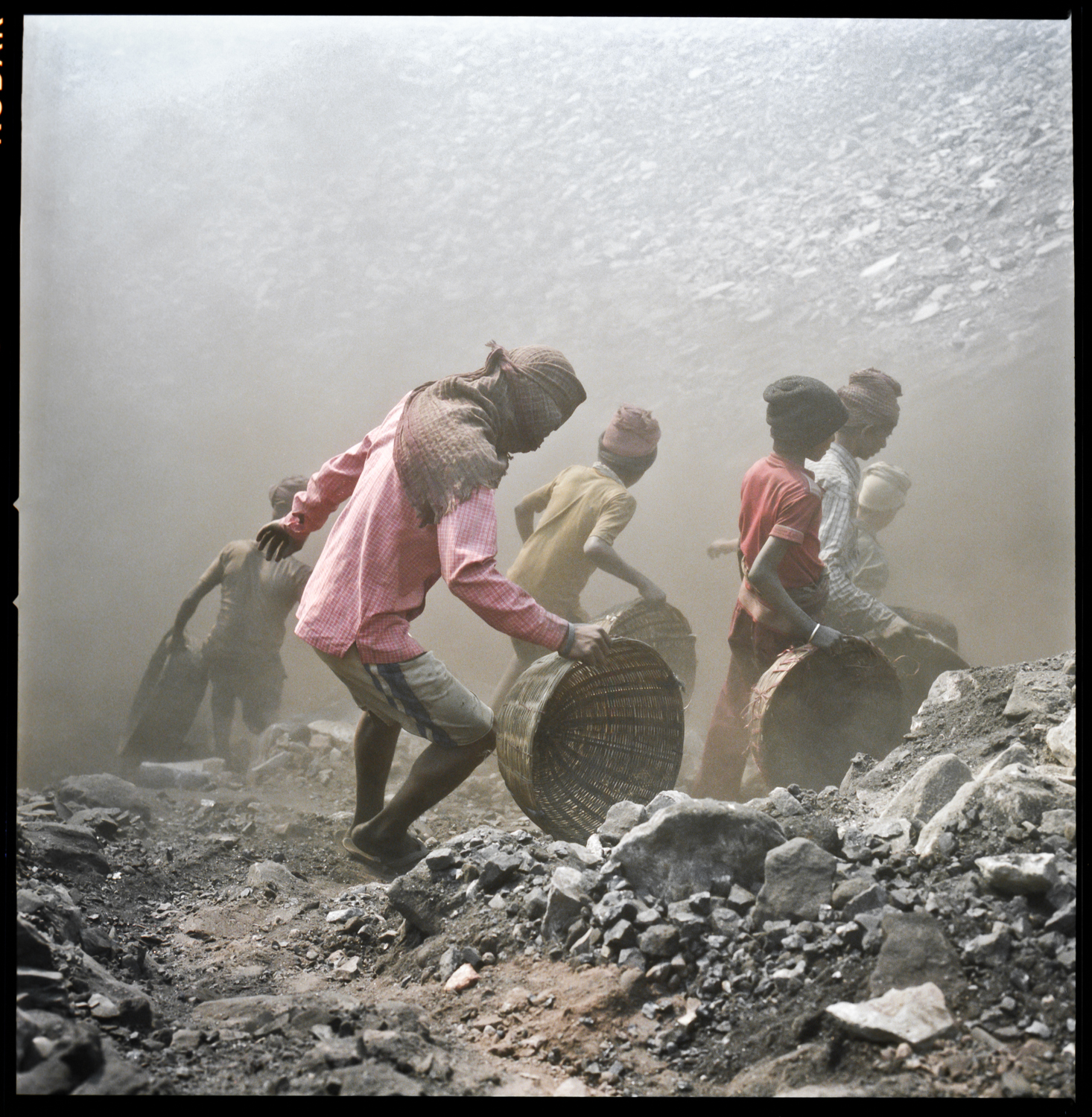
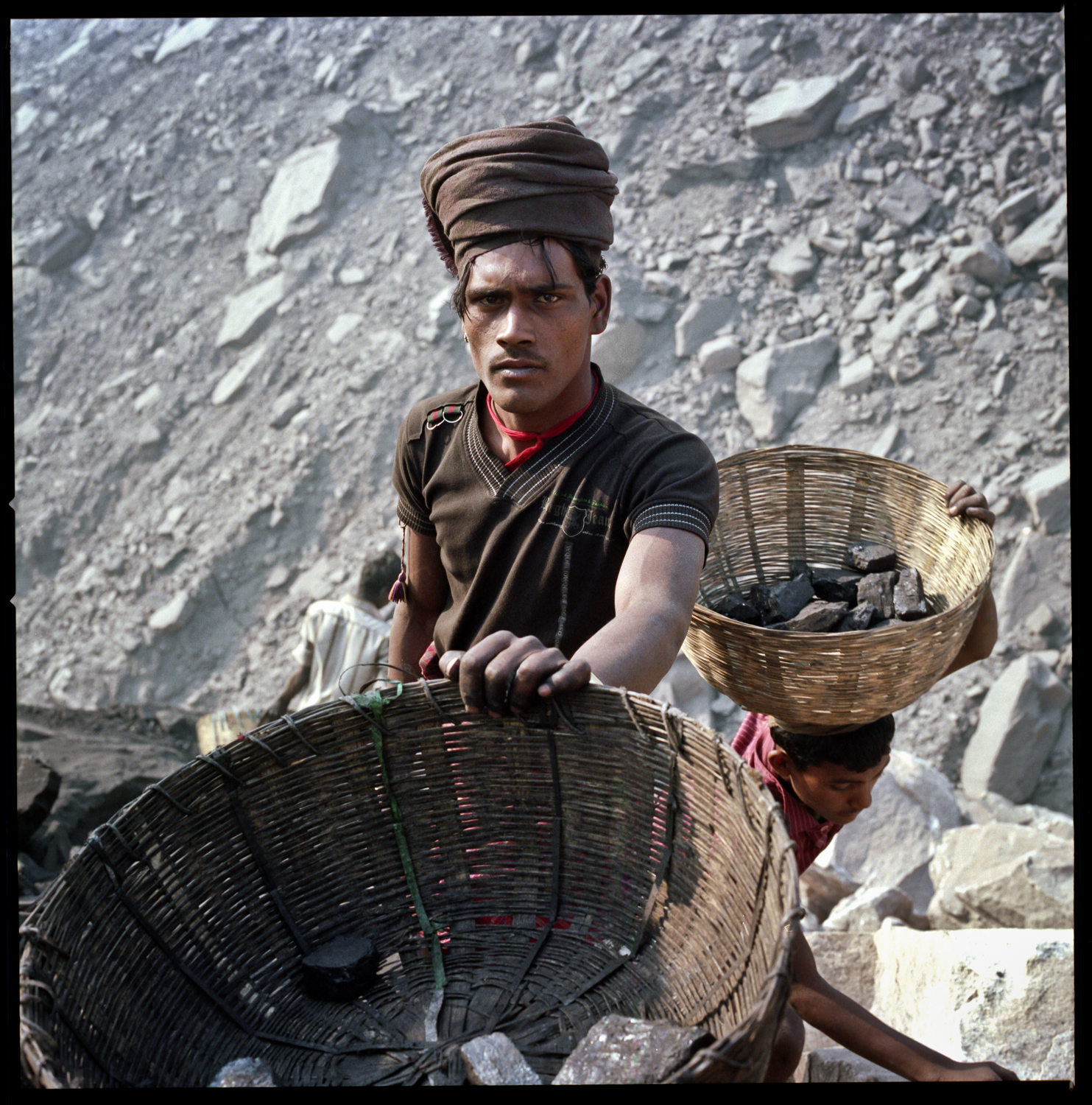
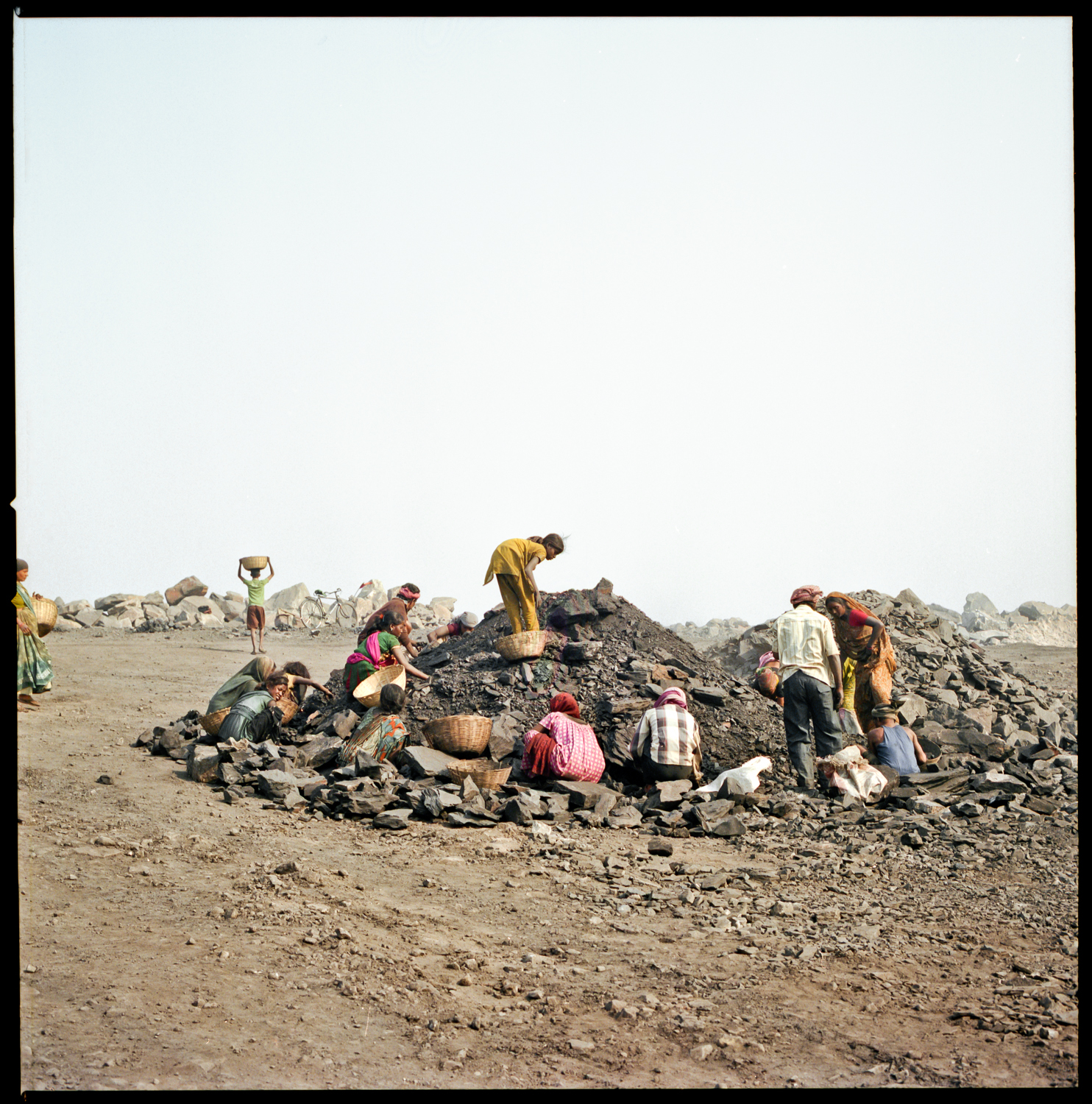
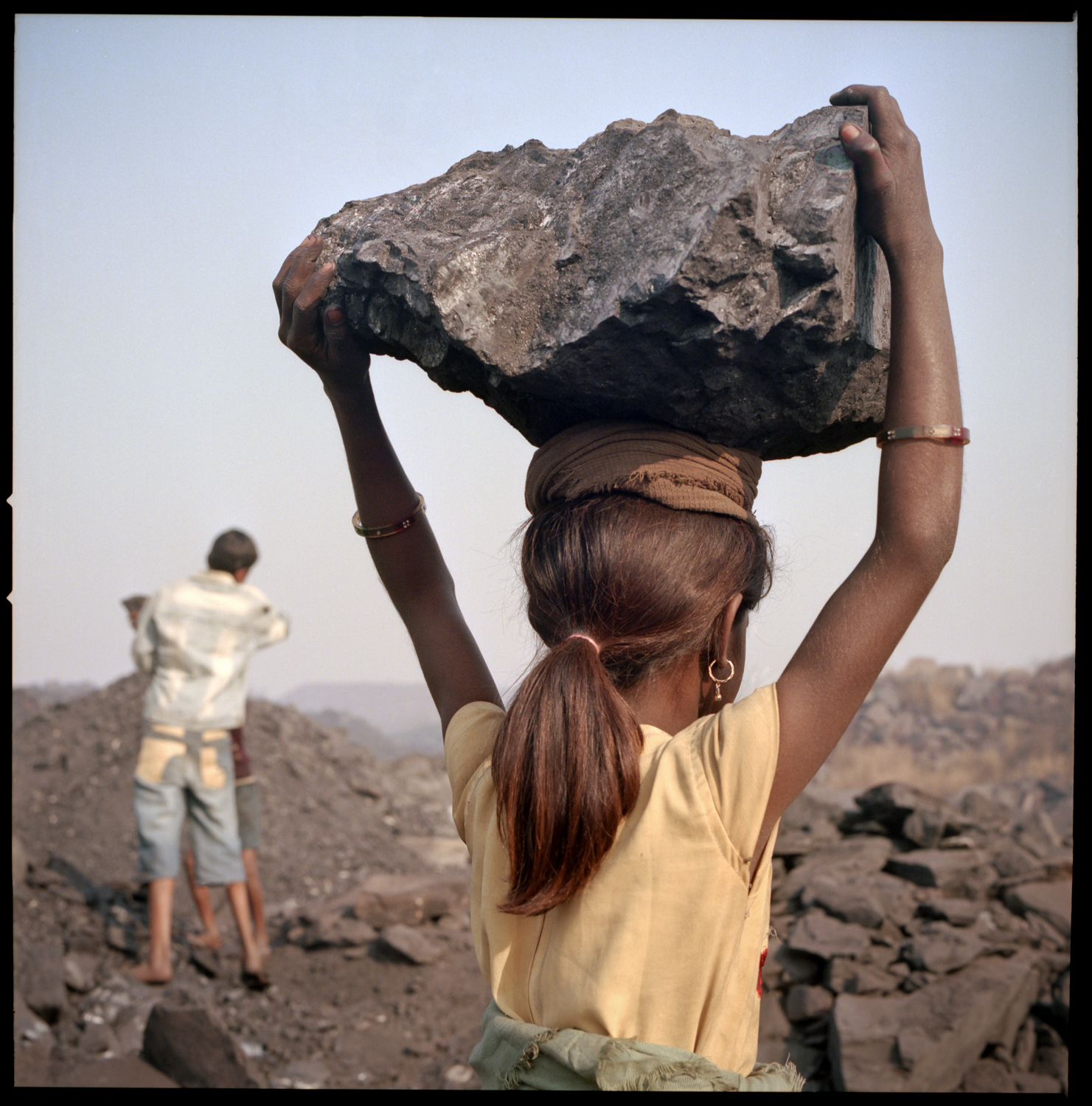
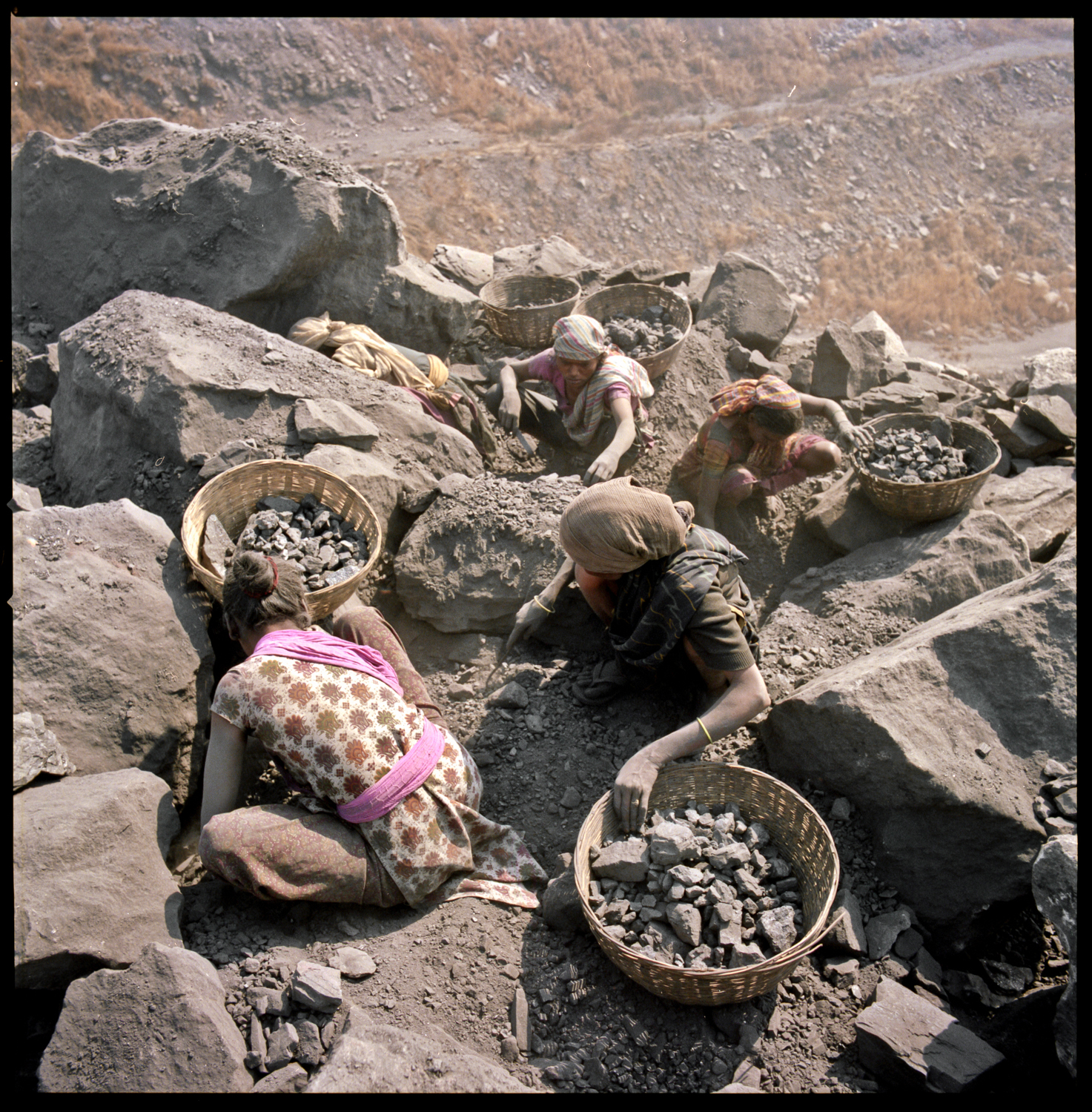
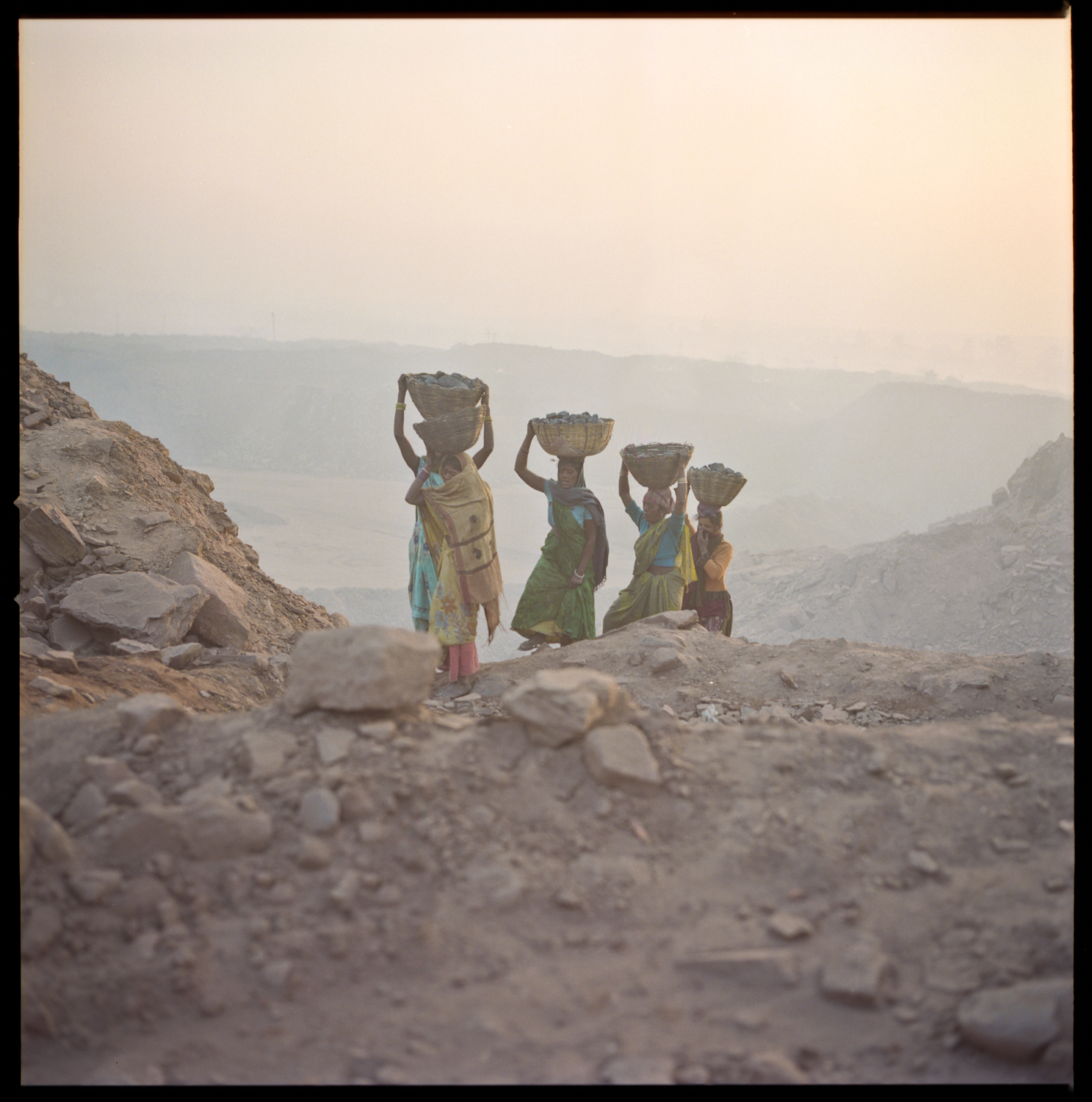
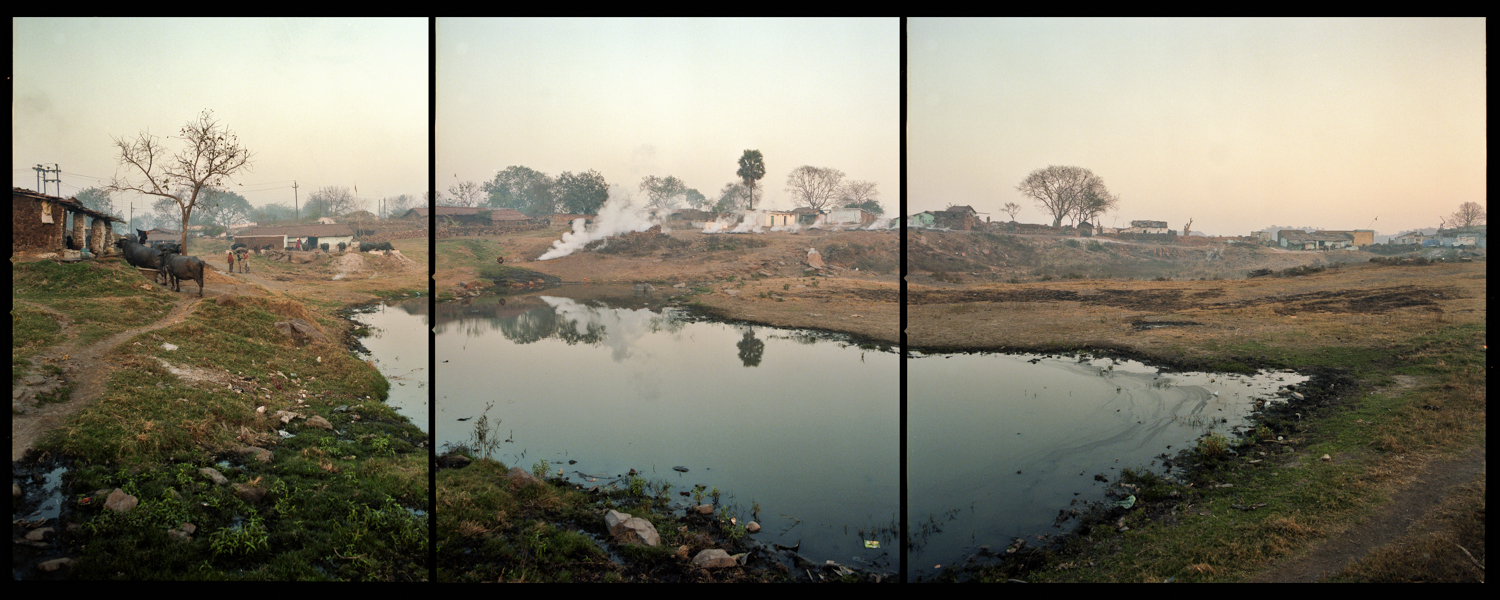
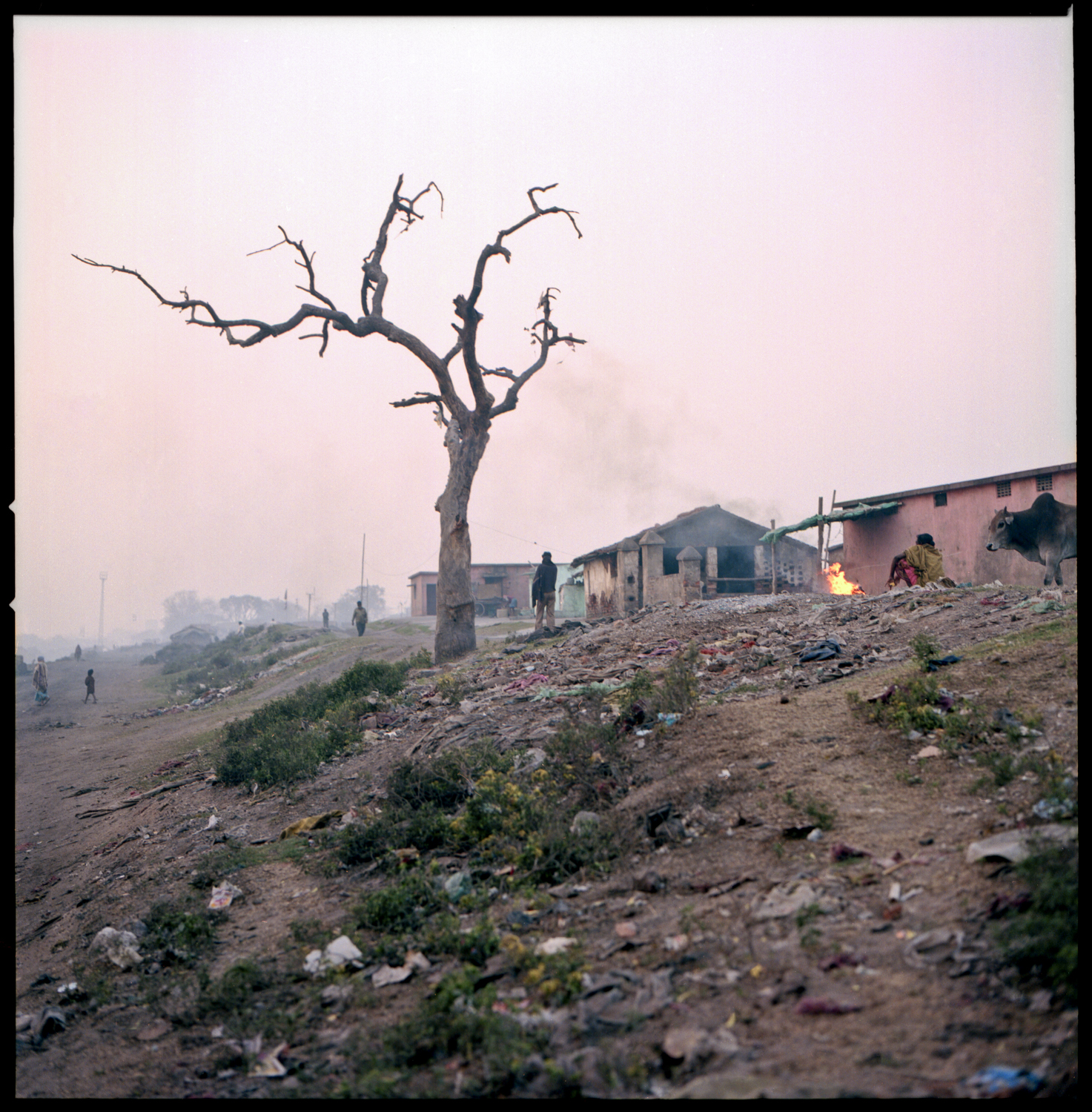
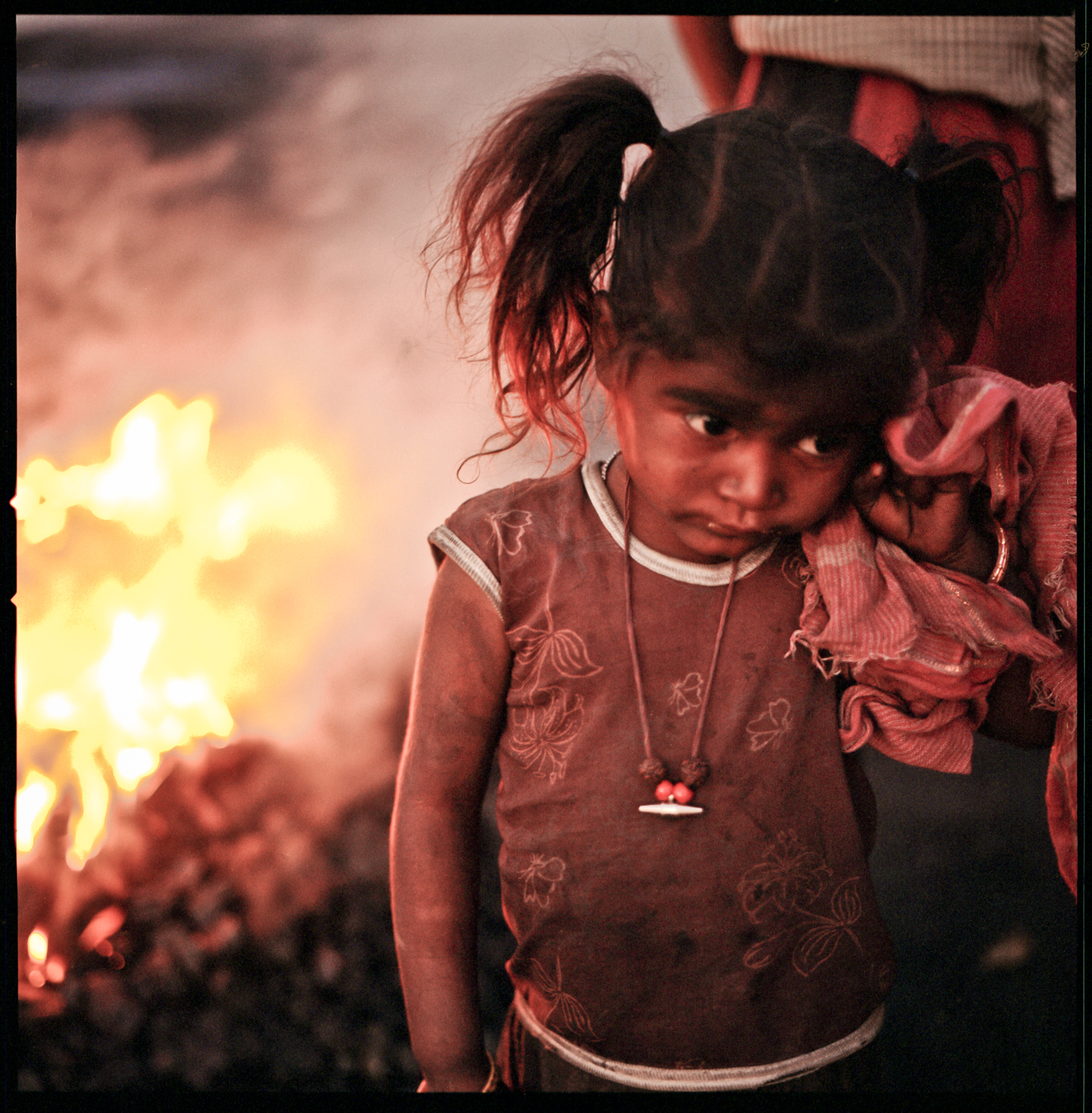
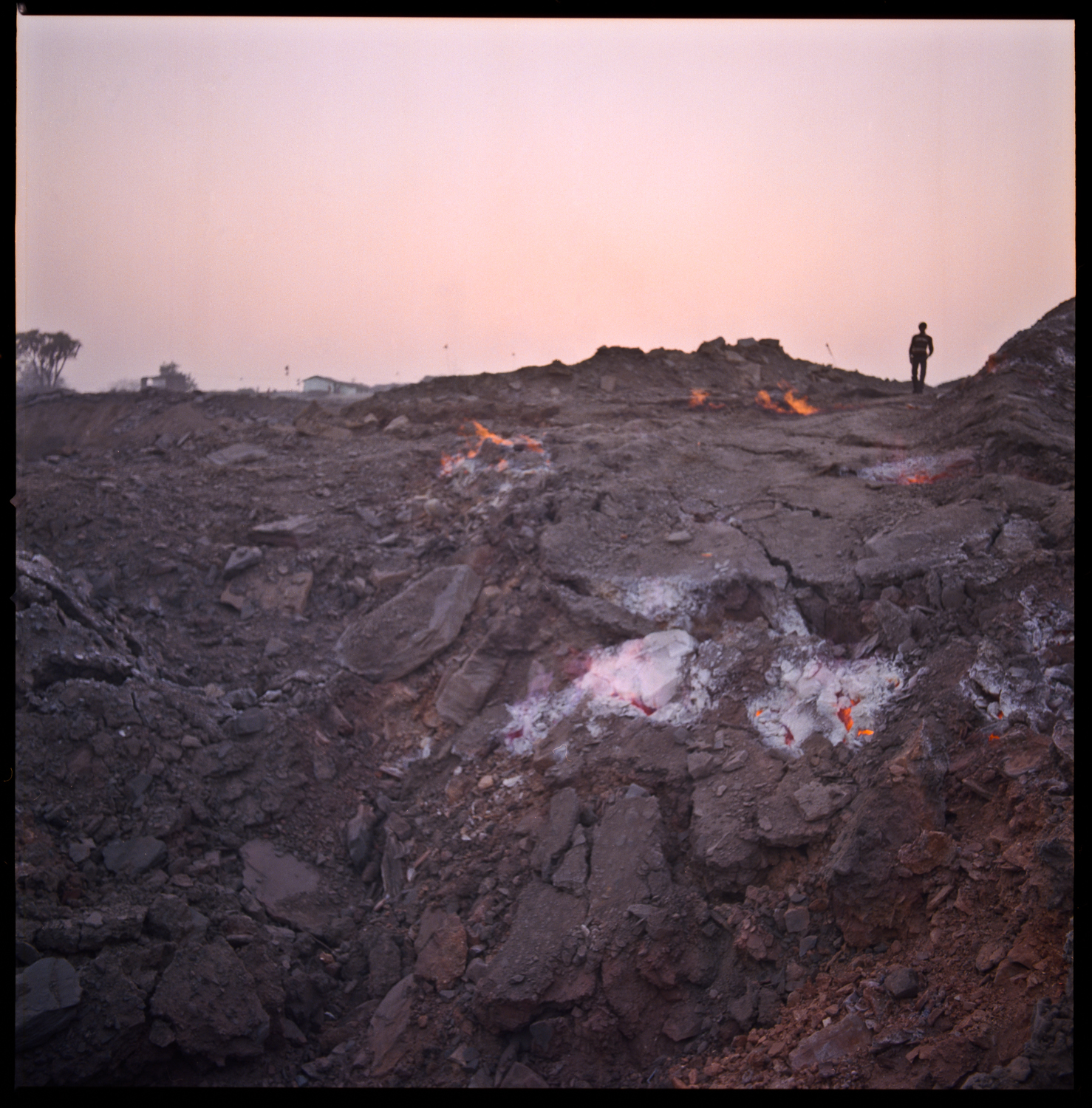
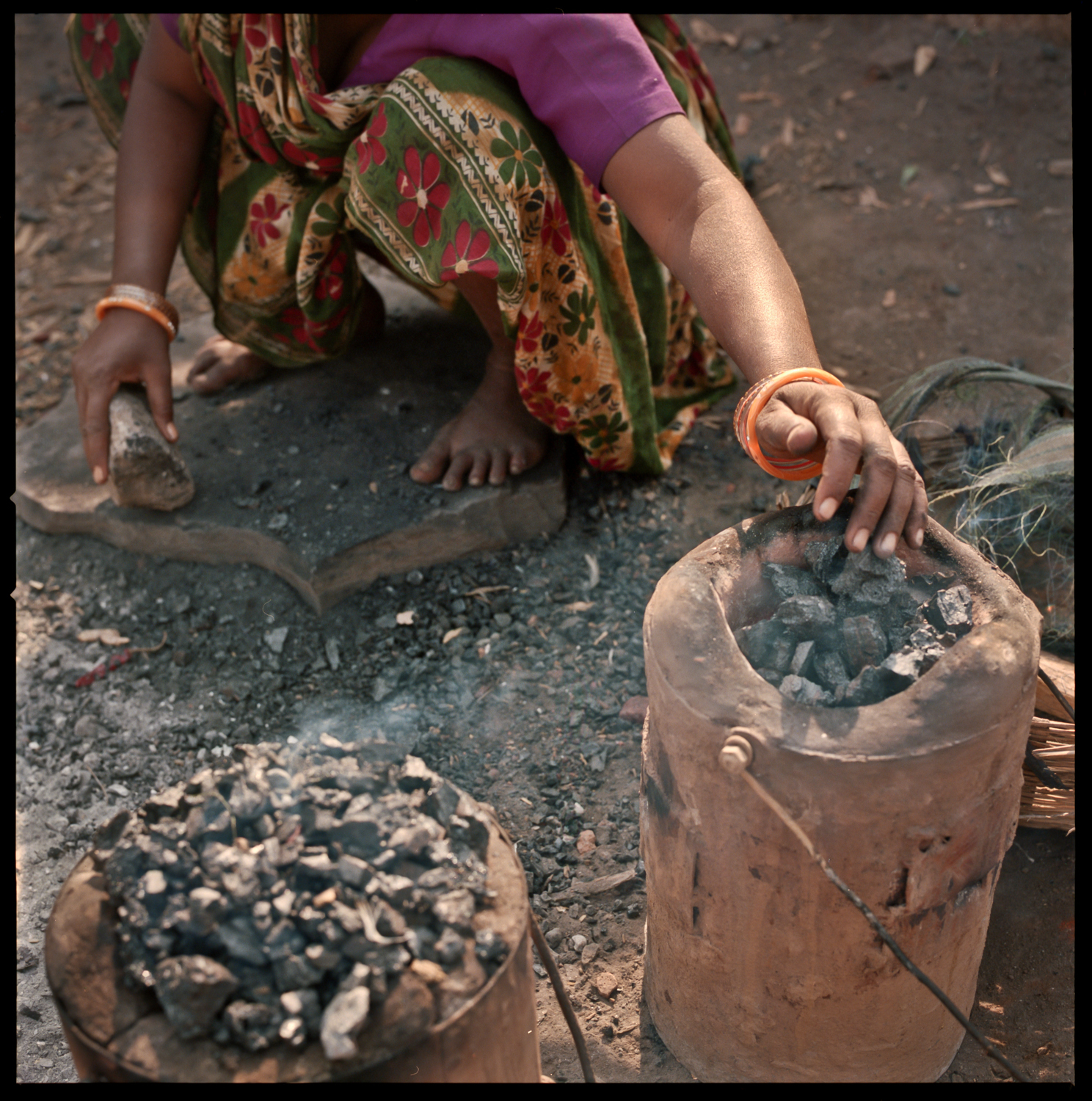
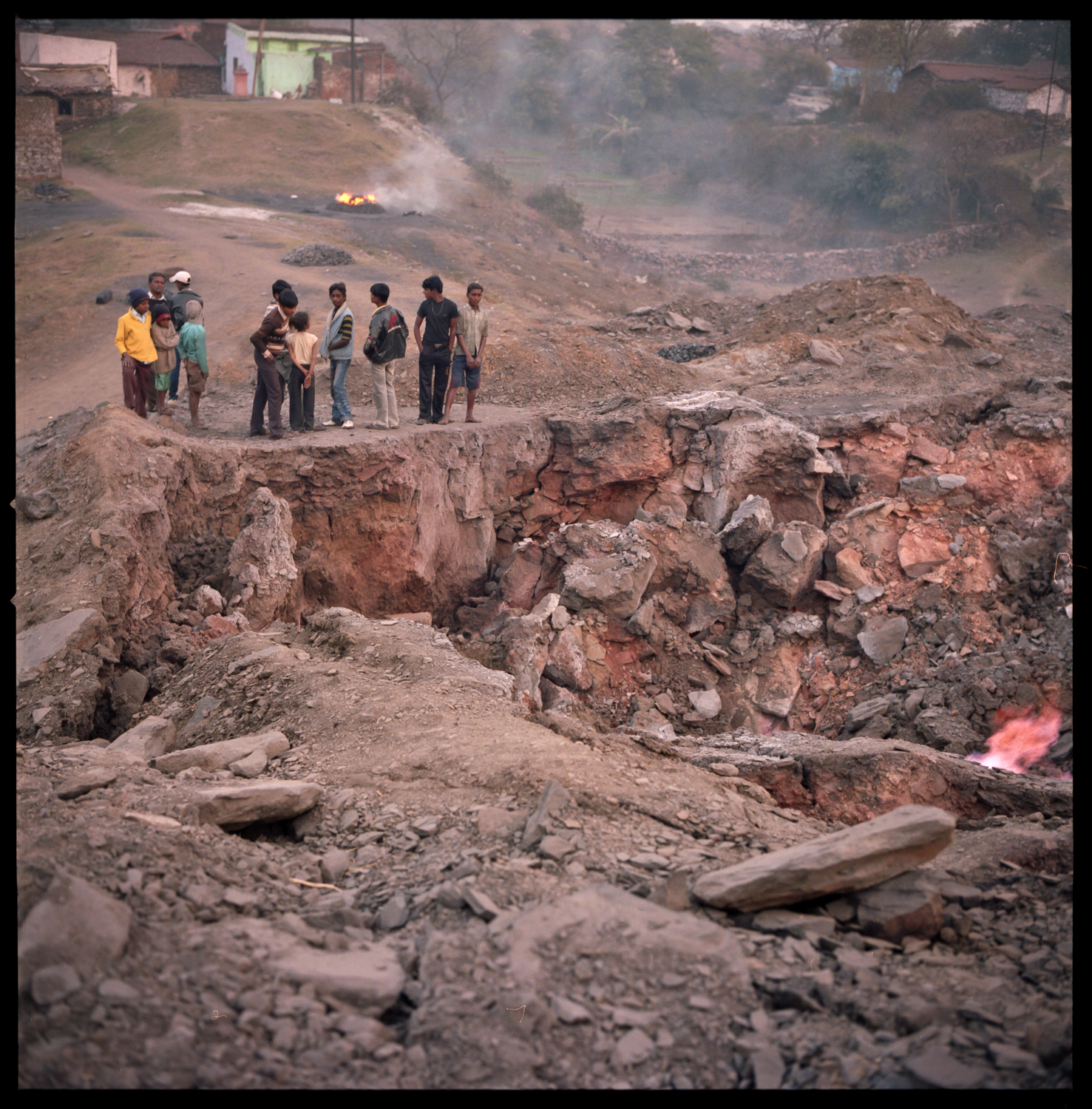
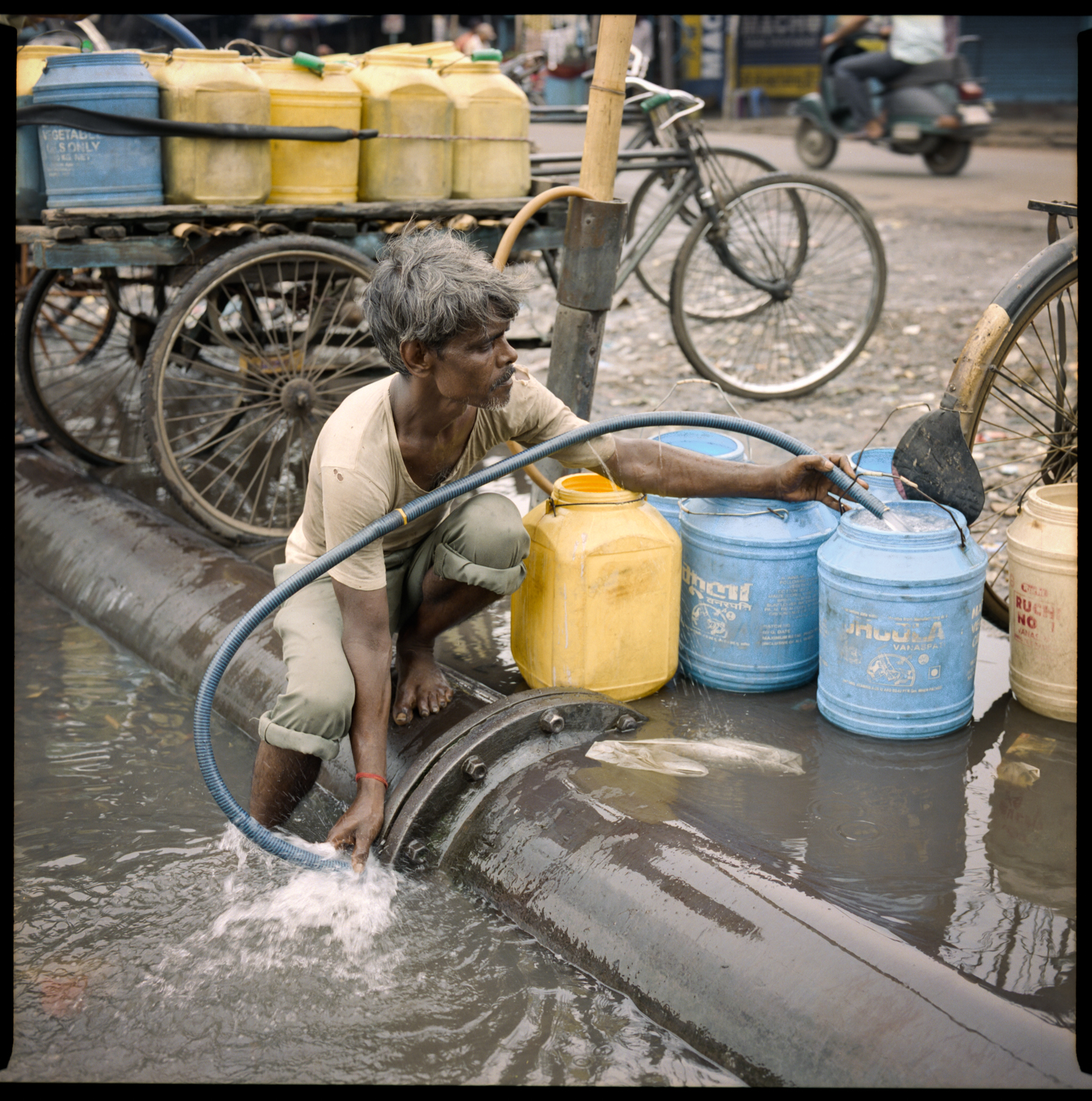
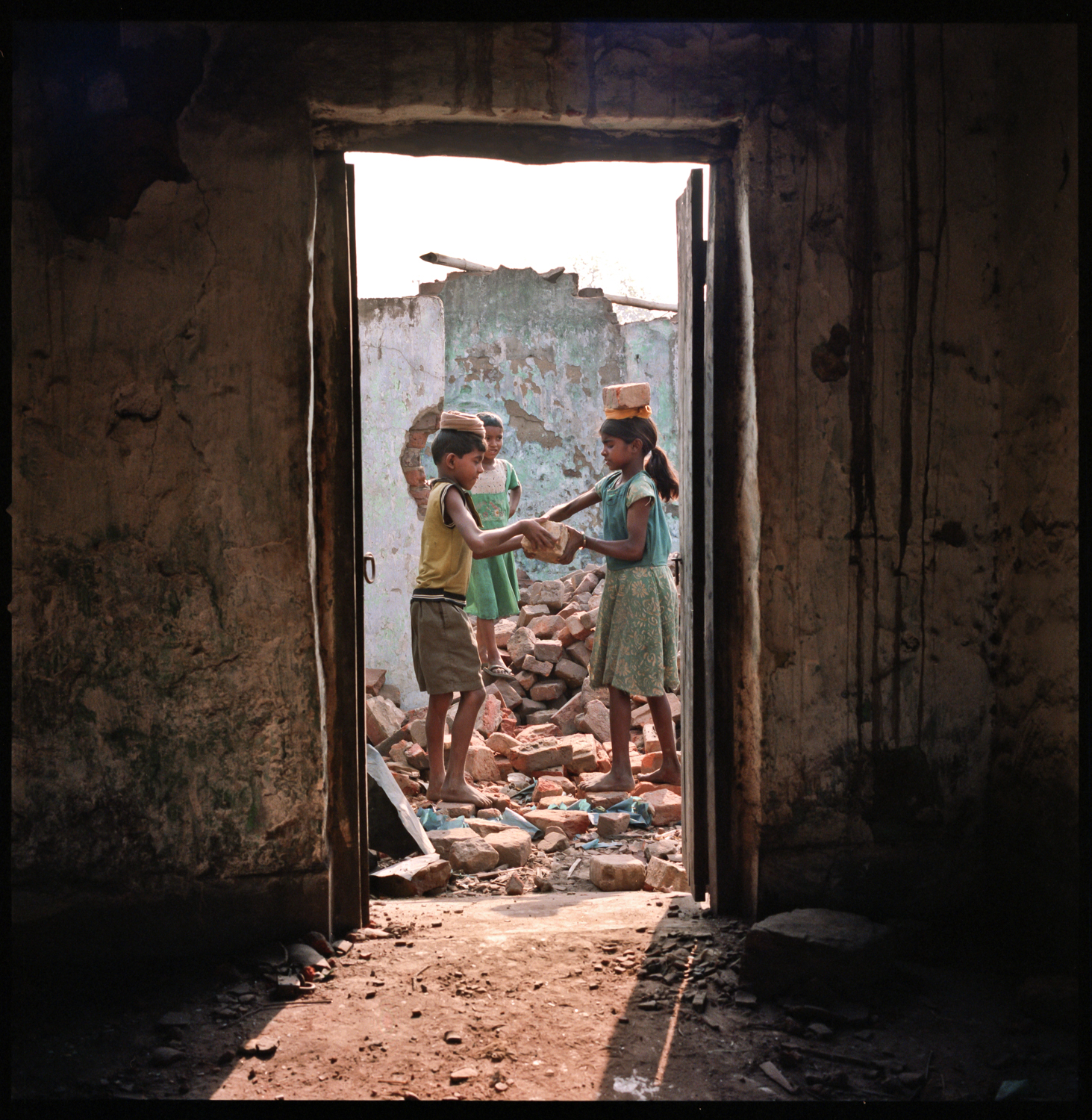
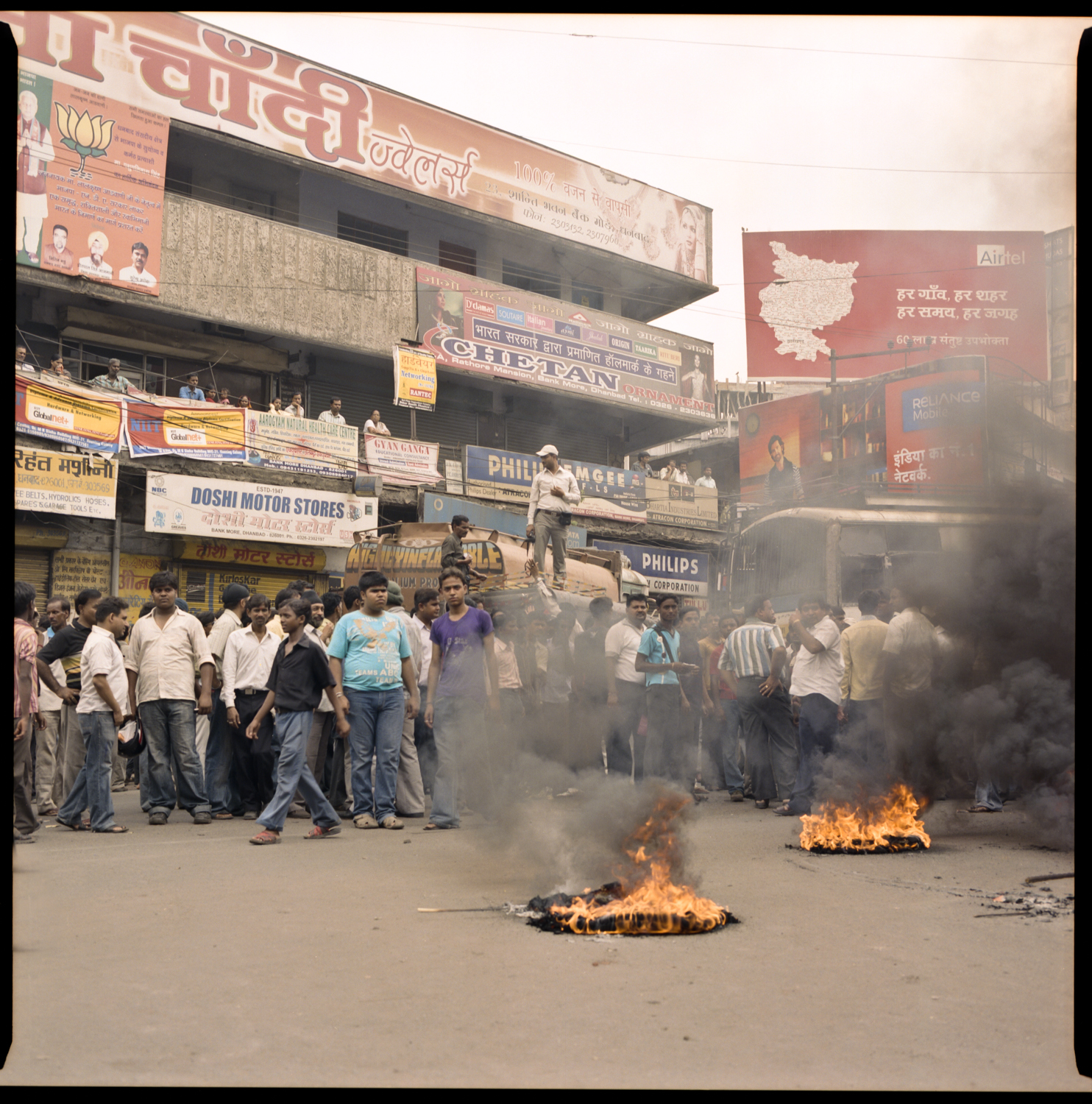
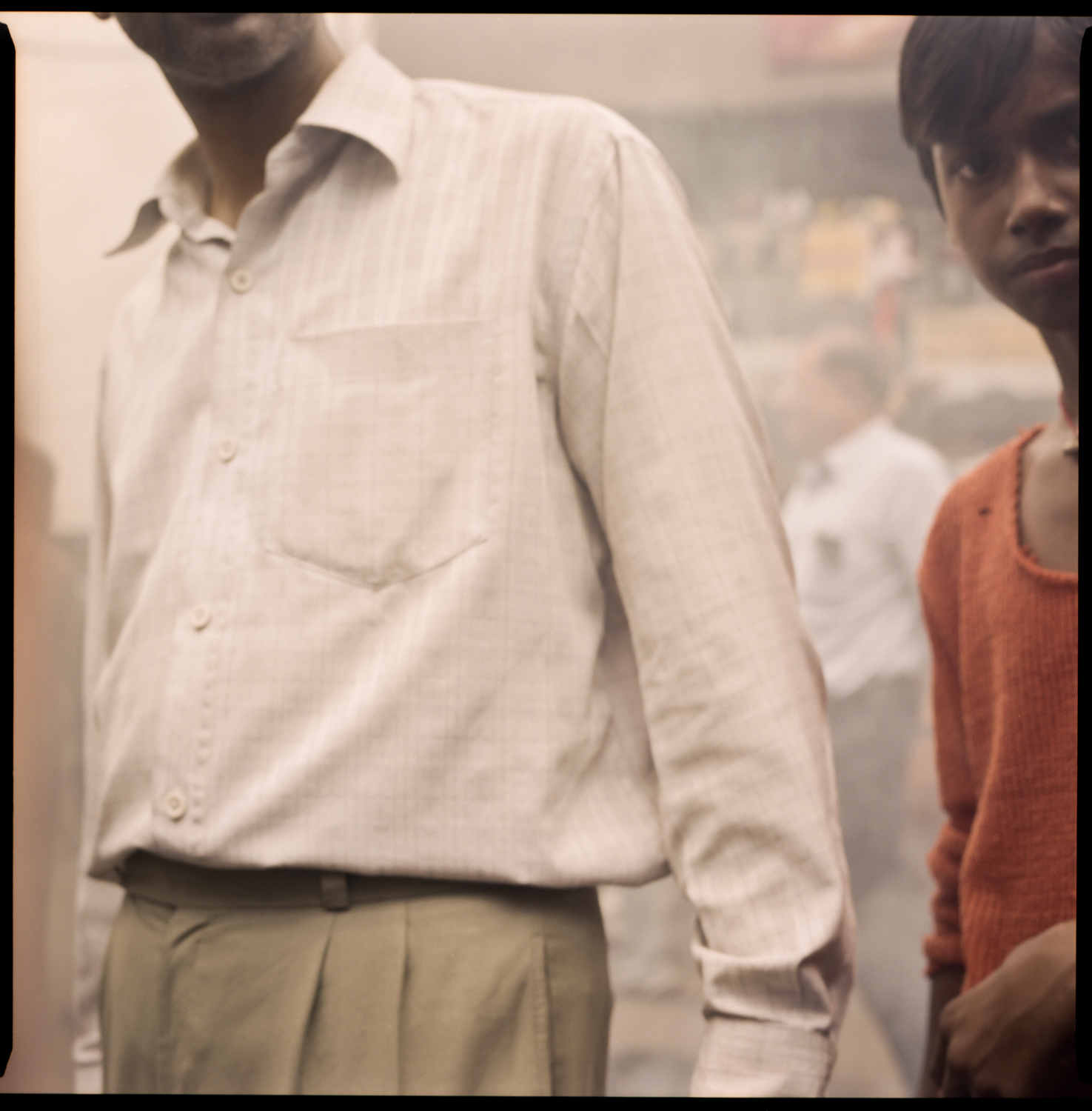
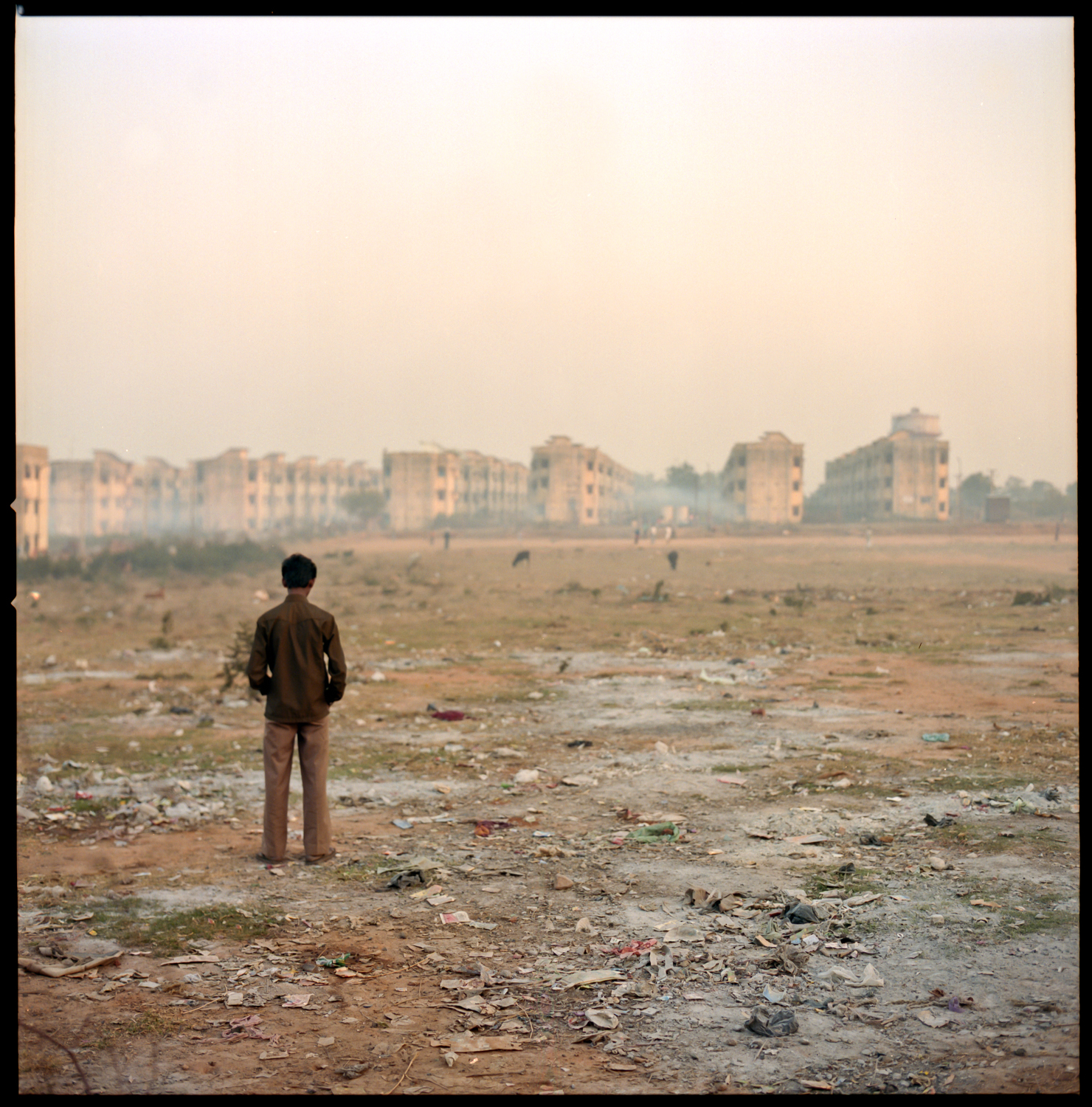
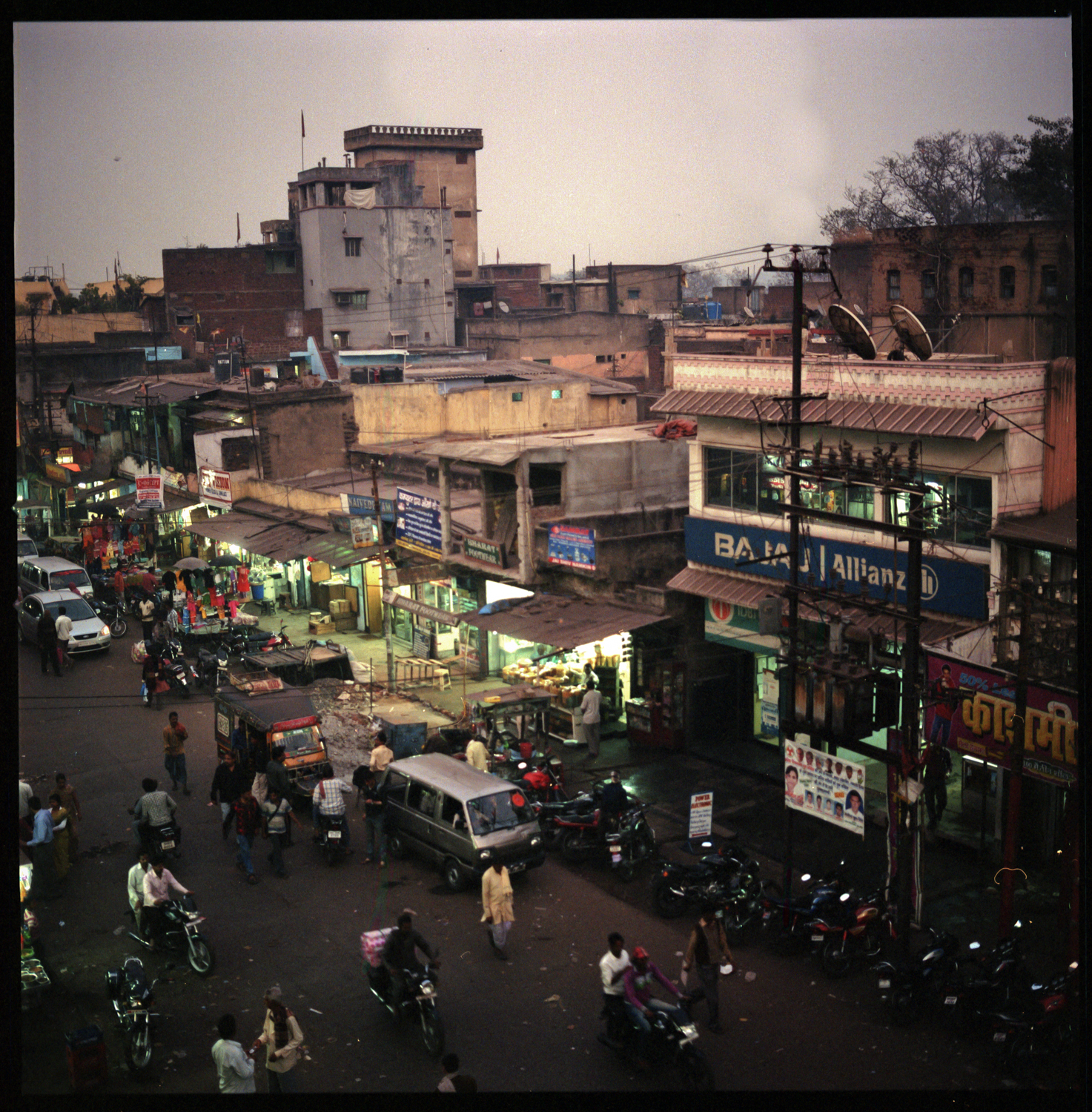
THE BURNING CITY
JHARIA, INDIA | 2009-2012
Ever since I was a child, I have heard that Eskimos have dozens of different words to describe subtle nuances of white. When I arrived in Jharia, I couldn’t help wondering the same thing about the inhabitants of the largest mining area in India. Could these people have developed a special vocabulary for all the nuances of black?
Roughly 400,000 live in Jharia. The lunar-like soil hasn’t produced vegetation for a long time and won’t be doing so any time soon. But the main danger for local inhabitants does not come from the black dust that is permanently floating in their environment. The danger is deeper and it is developing under their feet in the heart of coal seams. Bad management of the mines has led to uncontrolled underground fires. Over more than a century, millions of tons of coal have burnt up. It is equivalent to a volcano growing under Jharia. Toxic gas vapours spread into the atmosphere, the ground is sinking and houses are starting to crack. Sometimes flames burst up by the roadside. The imminence of a human disaster is very real. The Indian government is aware of this but doesn’t seem to want to free up enough funds to relocate the population at risk.
THE BURNING CITY
JHARIA, INDIA | 2009-2012
Ever since I was a child, I have heard that Eskimos have dozens of different words to describe subtle nuances of white. When I arrived in Jharia, I couldn’t help wondering the same thing about the inhabitants of the largest mining area in India. Could these people have developed a special vocabulary for all the nuances of black?
Roughly 400,000 live in Jharia. The lunar-like soil hasn’t produced vegetation for a long time and won’t be doing so any time soon. But the main danger for local inhabitants does not come from the black dust that is permanently floating in their environment. The danger is deeper and it is developing under their feet in the heart of coal seams. Bad management of the mines has led to uncontrolled underground fires. Over more than a century, millions of tons of coal have burnt up. It is equivalent to a volcano growing under Jharia. Toxic gas vapours spread into the atmosphere, the ground is sinking and houses are starting to crack. Sometimes flames burst up by the roadside. The imminence of a human disaster is very real. The Indian government is aware of this but doesn’t seem to want to free up enough funds to relocate the population at risk.